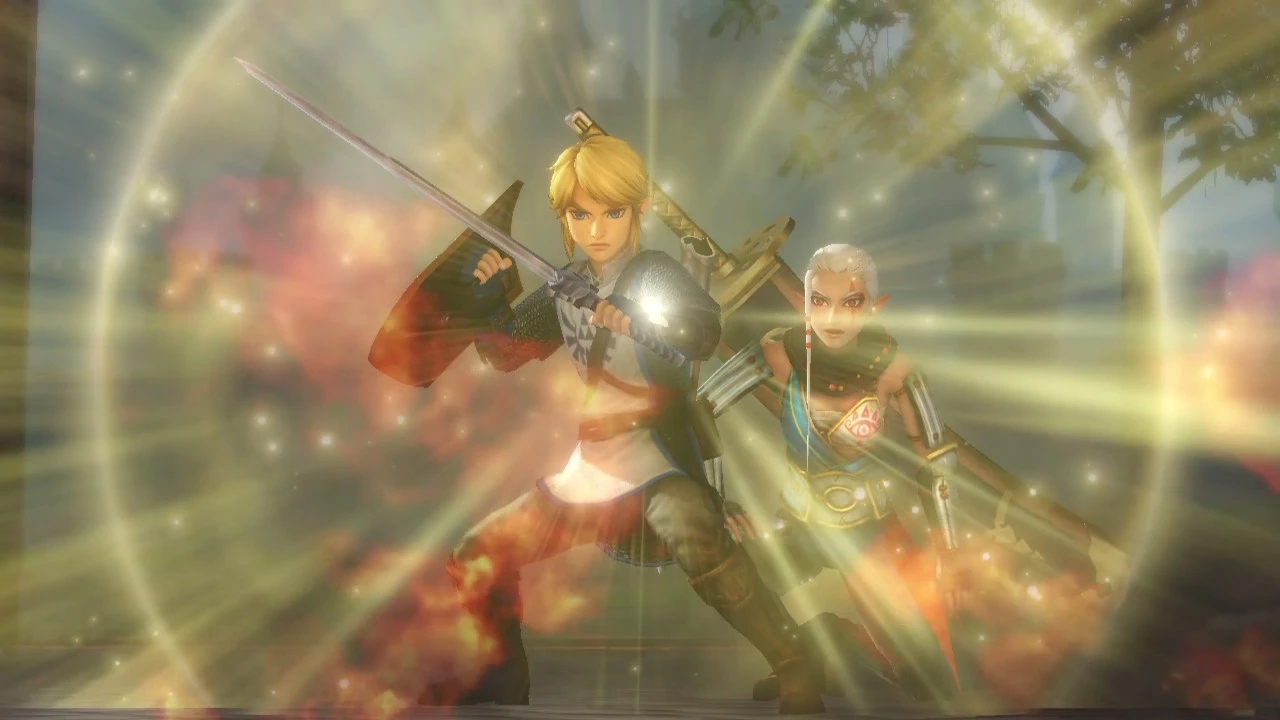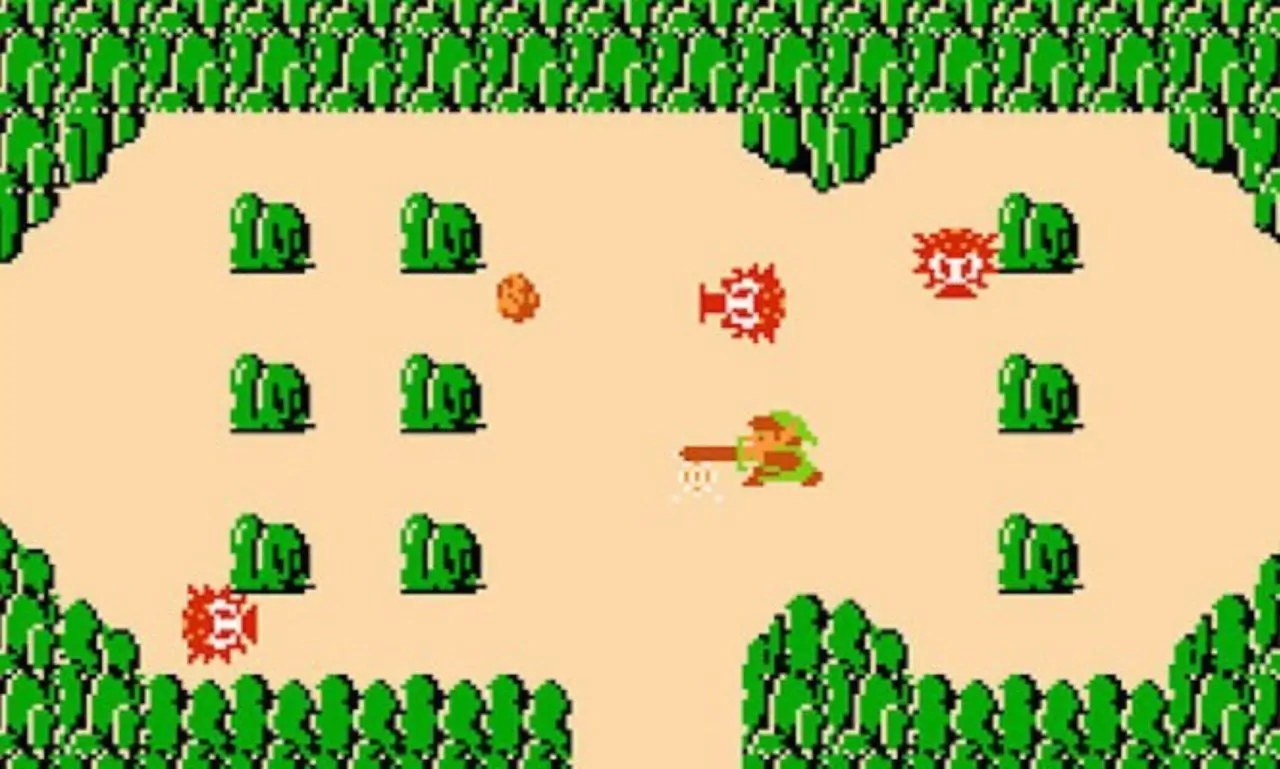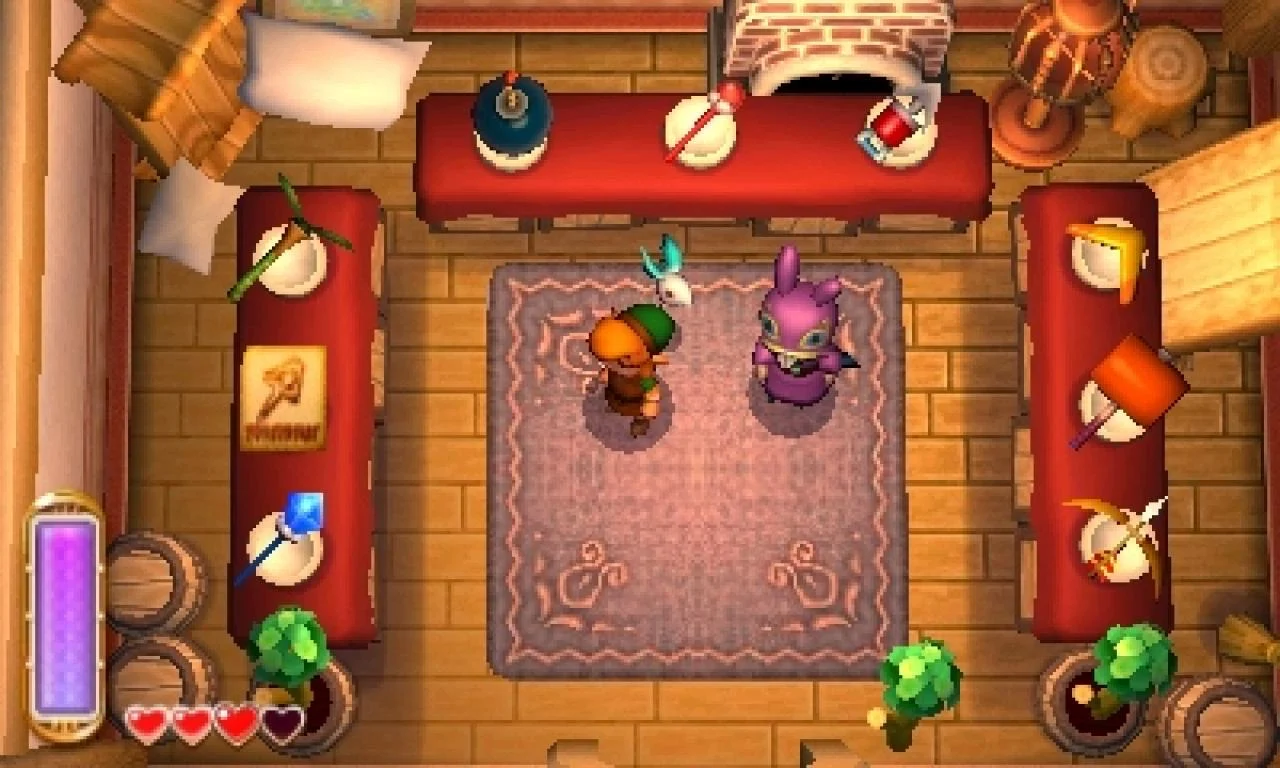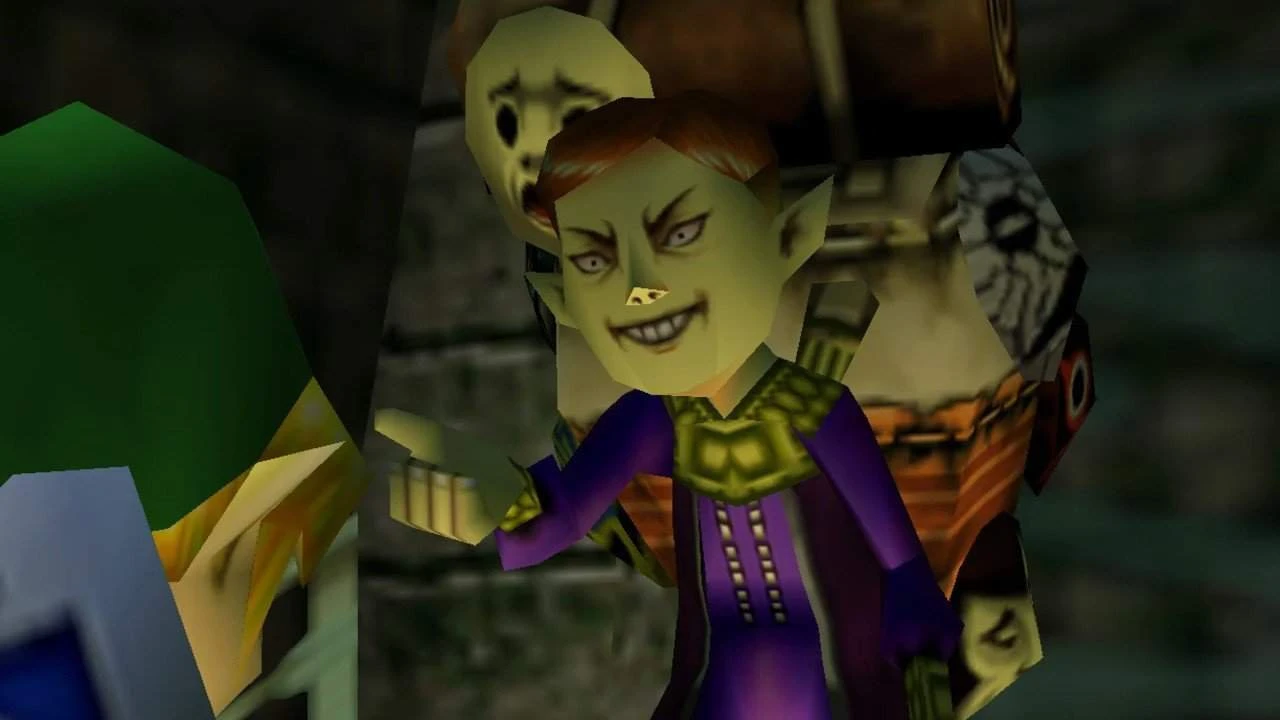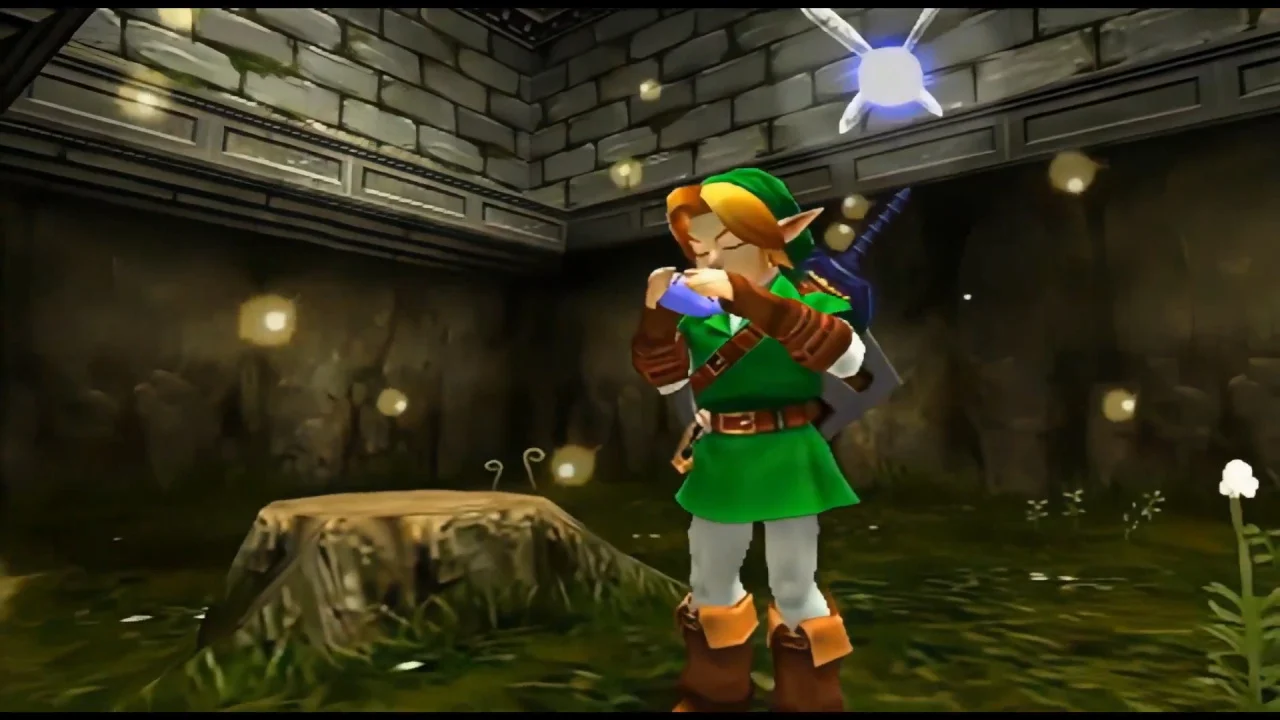ZELDA DUNGEON’S BEST ZELDA EVER 2021 EDITION LIST
Posted on December 18 2021 by Andy Spiteri

It’s the most wonderful time of the year! No, not Christmas — it’s Zelda Dungeon’s annual BEST. ZELDA. EVER!
This year was an exciting and eventful year for the Legend of Zelda series, as we saw a couple new releases and a tease of what’s to come. Just missing the cuff of last year’s Best Zelda Ever list was Hyrule Warriors: Age of Calamity, a game that was billed as the prequel to Breath of the Wild, which will enter the fray on our list for the first time ever, complete with its DLC, which just finished rolling out this October. 2021 also saw the announcement of the long-rumored Skyward Sword HD port, leading to somewhat of a second chance and, dare I say, redemption of the beleaguered Wii game. Additionally, the Game & Watch: The Legend of Zelda released, giving players an opportunity to revisit some old classics on a new handheld system. Speaking of which, Ocarina of Time is finally on the Nintendo Switch as part of the Nintendo Switch Online Expansion Pass, with Majora’s Mask coming in the near future as well. Of course, the biggest piece of news this year was a new glimpse at the sequel to Breath of the Wild. Although still untitled, we were told that this game would release in 2022; so if everything goes well, we could see this game ranked on our list next year.
With all this being said, as well as the many new writers that joined our team this year and the many different ways to play these Zelda games, let’s dive into our list.
The rules and premise from last year carry over: all the games from last year’s list will be returning to be ranked by our editors, and the point system stays the same. Games are ranked on a writer’s own personal experience, and we decided to factor in any games that got the remake treatment (Ocarina of Time 3D, Skyward Sword HD, Link’s Awakening Switch, etc.). The point totaling system stays the same: it’s designed to reward editors that had played more Zelda games. For example, instead of a writer’s favorite Zelda game automatically being awarded 21 points (for 21 games), we started with the least favorite game getting 1 point and worked up. That way, an editor who had only played 10 Zelda games would only be awarding their favorite Zelda game 10 points.
Although I say it every year, it really does bear repeating: putting together a list like this is no easy feat. Everyone has their favorite Zelda games, of course; but when tasked with ranking the whole series, how do certain factors play in? Are we ranking the games based on how they hold up today, or are we putting the context of the time of release into our considerations? What about the games that aren’t as readily available to play, and thus, haven’t been fresh on the mind in some time? How do we take into account spinoff games and different genres of Zelda games compared to the core series? These are all questions that each writer considers, and ultimately, we left it up to our writers to come to their own conclusions about what it means to be a great Zelda game.
Below, you’ll find the thoughts, opinions, critiques, and insights of our incredibly talented writing staff. We’re very proud to once again deliver Best. Zelda. Ever! to everyone. Let’s get down to it!
Best Zelda Ever 2017 | Best Zelda Ever 2018 | Best Zelda Ever 2019 | Best Zelda Ever 2020
22. Four Swords
Highest Rank: 16 | Lowest Rank: 22 | Last Year’s Rank: 20 | Avg Points per Author Played: 3.23
12/29 Editors had not completed the game and did not rank it

Finding itself in the unfortunate spot of last place on our list is Four Swords. Plaguing this game since its release back in 2002 was its limited availability, as evidenced by almost half of our team never having the opportunity to play it. Even still, those who had played it generally weren’t impressed.
“When a video game studio explores a new concept or gameplay style, it can take a while to get everything right,” explains Sean Gadus. “For Nintendo, Four Swords is a great example of that lesson. Four Swords was Nintendo’s first real attempt at a multiplayer Zelda experience, and while the game paved the way for better games like Four Swords Adventures and Tri Force Heroes, it feels like a proof of concept more than a full-fledged game. Overall, the game is significant for showing Nintendo that it was possible to adapt the Zelda series to a more casual, party-based multiplayer style. This led to more fleshed out multiplayer experiences like Four Swords Adventures and Tri Force Heroes.”
David Wayne Nystrom actually liked Four Swords well enough, but acknowledges its Achilles heel. “The game stands as a competent adventure in Hyrule, introducing elements like the titular blade and Vaati that would go on to be fleshed out in later titles. The simple form this game took on its initial release with A Link to the Past on the Game Boy Advance allowed later developers to really expand and dig out a unique section of Zelda lore. The game took the classic gameplay and gave it something new that worked well enough, making something that everybody who played it enjoyed. The biggest setback, though, was just not enough people playing it.”
“I don’t think that Four Swords is necessarily the worst Zelda game, but there are certainly enough factors working against it to make me understand why some people think it is. It was the first dip in the multiplayer pool that Zelda ever took, so right away people are going to be thrown off. It was also incredibly hard to actually play unless you had four friends with a GBA connector cable OR you managed to download it in a very limited amount of time on your 3DS,” Andy Spiteri adds while face palming. “I think the thing that actually works against it the most though is that, after the release of the much superior Four Swords Adventures, this game just really comes off as a demo or proof-of-concept — which, in all honesty, it kind of is.
“So on one hand, if you went the lengths to finally play this game and ended up with a mediocre Zelda game, I can see how that’s a letdown. On the other hand, if you enjoyed Four Swords Adventures and wanted more of that style of game and then played Four Swords, it feels lesser than. So it’s in a tough spot. Combine that with the lack of availability, and that’s how you finish in last place.”
21. Tri Force Heroes
Highest Rank: 11 | Lowest Rank: 22 | Last Year’s Rank: 21 | Avg Points per Author Played: 3.75
9/29 Editors had not completed the game and did not rank it
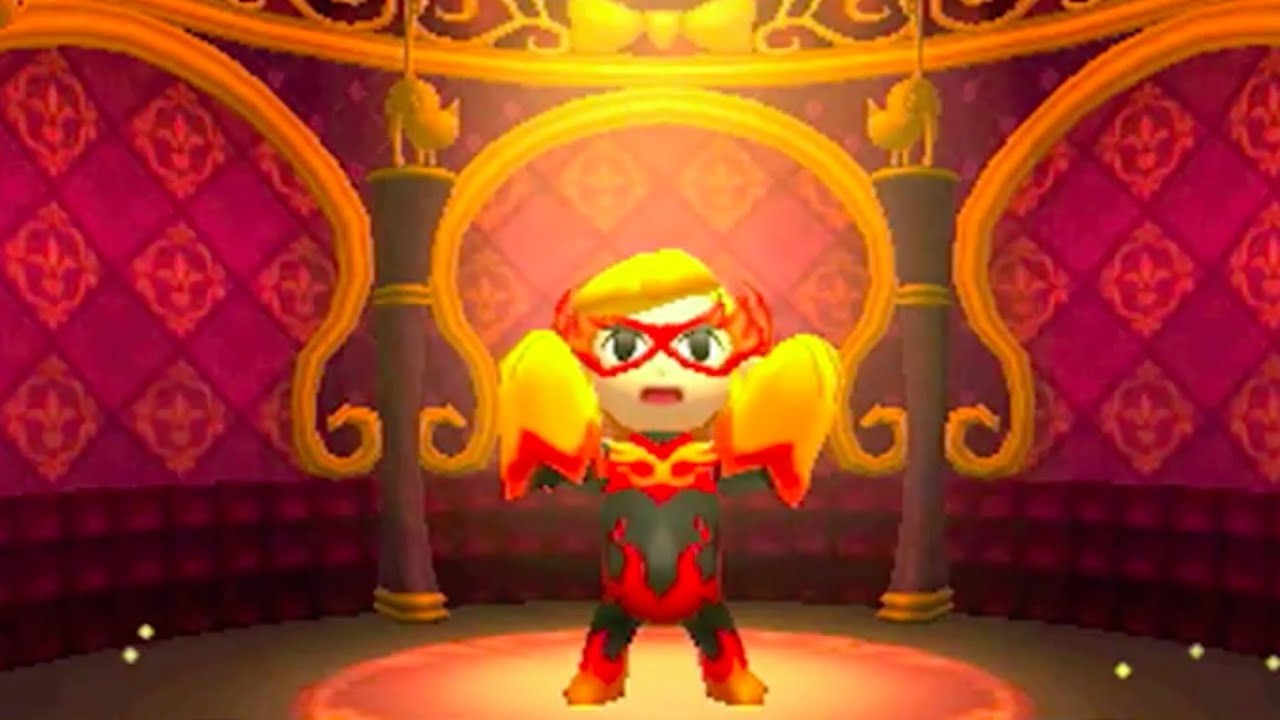
Perennial punching bag Tri Force Heroes finds itself narrowly avoiding another last place finish on our list this year, thanks in part to simply being more accessible than Four Swords. Having finished in last place on five different lists, though, Tri Force Heroes, barring some kind of remaster someday, it seems will always be destined to fight for last place.
“Tri Force Heroes gets a lot of flack as one of the worst Zelda titles in the franchise, but I think that’s simply because so many other great titles exist. I know that in my own personal ranking, this multiplayer game ended up on the lower end of the scale when compared to stand-out entries like Ocarina of Time and Twilight Princess,” says Judy Calder, her empathy reaching un-human-like levels. “But I have to give credit where it’s due and say that Tri Force Heroes has everything the player needs apart from the actual companions to make the experience what it should be. I think Nintendo was too far ahead of their time in this regard, and if this game were available on Switch with online play, it would gain a much bigger fanbase today.”
Emi Curtis is a bit more critical. “Tri Force Heroes is a title that is held with relative ire by much of the fanbase, and I am very much among that cadre. However, in the effort of not being entirely negative towards it, I do acknowledge the circumstances of its release had a lot to do in really harming its potential. Being in college when it was released, I had no one at all to play with through the game unlike during my days playing Four Swords Adventures with the neighborhood kids. Beyond that, I think carrying the Zelda name only harmed Tri Force Heroes further. Beyond just having to compete with the superior catalog of games present in the rest of the Zelda series, I openly admit that if I’d played the game as some quirky experimental title (a la Codename S.T.E.A.M.), I think I would’ve thought a lot better of it. In the end, though, the game will rest in the same place for me as Star Fox Adventures, a weird, failed black sheep of a big series.”
“When looked at critically, Tri Force Heroes features puzzles and encounters that are just as cleverly designed as those seen in any other 2D Zelda game,” sums up Rod Lloyd. “Coupled with a charming tone and a fun costume gimmick, this title should have been a solid pick-up-and-play multiplayer Zelda adventure that all could enjoy. Unfortunately, all its strengths are overwhelmingly outweighed by its technical failings. In an era defined by online multiplayer and wireless connectivity, Tri Force Heroes stumbles to provide a simple, intuitive, and reliable method by which friends can link up and adventure together for more than one play session. While finishing the adventure with a consistent trio is certainly possible, players are more likely to experience frustration, confusion, and stifled progress in an effort to do so.
“And let’s face it: single player, while adequate, is not the ideal way to play Tri Force Heroes.”
20. The Adventure of Link
Highest Rank: 11 | Lowest Rank: 22 | Last Year’s Rank: 18 | Avg Points per Author Played: 4.07
3/29 Editors had not completed the game and did not rank it

In years past, it seemed that more editors were able to put on their nostalgia goggles and view the positives of the first Zelda sequel. Not this year, though, as The Adventure of Link finished in last place on no fewer than 8 different lists, far and away the most of any game this year.
“Designing a video game requires the correct balance of accessibility and difficulty, a steady learning curve for first-time players, and a distribution of progression items or locations that seem fair and doable enough for the player to feel challenged and yet inspired to continue on. It is unfortunate that The Adventure of Link does not have these elements, especially since those are elements that its predecessor excelled in,” writes Alex Weber, holding nothing back. “Playing The Adventure of Link felt like I was in a torture chamber, an endless tirade of unforgiving obstacles. Being thrust into an enemy level every five seconds pauses gameplay in a seething-inducing, annoying way; deaths come quickly and, without fail, bring you to the first screen of the game. Items also require exploring that puts your patience to the test. The difference between a hard game and an unfair game is vast; there’s a lot of wiggle room since the lines are drawn based on skill. The Adventure of Link leapt to cross that line, requiring that skill to be one that can endure an entire overworld of inaccessible game design.”
Sharing the same sentiment, although maybe sugar-coating the criticism a bit more, is Chakell Herbert. “Don’t get me wrong: I love Zelda. And I hate to shed any critical light on any of the games in this series. But if I’m being completely transparent, The Adventure of Link is just not my game. In fact, it’s the lowest of the low on the entire list of entries for me. When I play a Zelda game, I play it from start to finish without fail, and this is honestly the first and only one I have willingly and purposely not finished. In my opinion, no game in this series is “bad,” but this one just doesn’t meet the mark with what I usually expect in the whimsical, fantastic land of Hyrule. Sure, I enjoy the premise and the story this game adds to the history and lore of Hyrule, from the introduction to the Triforce of Courage and an explanation behind the tradition of naming princesses in the royal family ‘Zelda.’ But when it comes to actual gameplay? I would almost rather visit the dentist than be forced to drag side-scrolling Link through this particular adventure.”
Still, The Adventure of Link has its share of fans that wouldn’t necessarily call the game their favorite but do see the merit in the NES sequel. Among those is Sean Gadus.
“One of the issues that keeps many Zelda fans from loving The Adventure of Link is that the 1989 sequel feels divorced from the style and design of the original Zelda and almost all subsequent 2D Zelda games. Because of this, it can be hard to understand how the game fits into a franchise that seemed to go in a different direction. Additionally, The Adventure of Link can be extremely difficult for modern players unaccustomed to how classic games were designed. Despite its limitations, the game has some cool ideas like magic spells, experience points, a leveling system, and a more dynamic combat system. Overall, The Adventure of Link tops the list of Nintendo games that desperately need a modern remake. Giving the game more precise controls, tweaking the difficulty, and expanded visuals would give new players a chance to appreciate a game that stands out among the crowded Zelda catalog. “
19. Hyrule Warriors
Highest Rank: 3 | Lowest Rank: 22 | Last Year’s Rank: 15 | Avg Points per Author Played: 5.47
6/29 Editors had not completed the game and did not rank it
Taking an absolute tumble down the list this year is the inaugural Hyrule Warriors spin-off title. In a year where a new Hyrule Warriors game was released, albeit with more of a focus on the narrative and continuity (or so we thought!), I had imagined interest in the original Hyrule Warriors would go up, and with it, its ranking. But it was not to be — ultimately, the style of gameplay is what held it back.
“I can in no way claim that Hyrule Warriors is a bad game, but I also in no way like its gameplay style,” opines Alexis Anderson. “I was excited about this game before release; it is fascinating to see our beloved characters in a different context along with fun new friends like Linkle. And the DLC fighters only sweetened the deal — I was overjoyed to hear about Marin’s inclusion (it gave me hope for a Link’s Awakening remake that, sure enough, materialized). But I was bored with this game about two hours into playing it. The fighting is repetitive, I didn’t find the narrative compelling, and the exploration aspect of most Zelda games is also absent. I am happy that other Zelda fans enjoy these titles, the more the merrier in terms of unique Zelda content, but it just did not hook me. Apart from boss battles that require a lot of strategy or fighting enemies as part of a puzzle to advance in a dungeon, the combat in Zelda games has never really been the draw for me; and Hyrule Warriors is almost all combat.”
Still, though, Hyrule Warriors is a niche game with a nice audience — one that loves it dearly.
“Out of all the games in the Zelda franchise, the original Hyrule Warriors games probably have the most to do. From challenges, to weapons, to skins, there’s no shortage of content,” says John Piland, grasping the silver lining. “Unlike most mainline Zelda entries, the ending of the campaign is not the ending of the game — in fact, it is only the beginning. With so many different appearances and play-styles, it’s hard to get bored playing this game. Of course, we can’t forget the various maps and modes, really giving the player an almost limitless variety of content to play through. Can’t clear a level? Go take off some steam on a big boss, unlock some cosmetics, or level up characters while obtaining some helpful items to boot (and maybe a new powerful weapon as well). Truly, it’s hard to run out of things to do in this game.”
Resident Zelda Dungeon Hyrule Warriors super-fan Brandon Schmitz goes a step further.
“Having claimed more hours of my life than any other Zelda game, the original Hyrule Warriors will always hold a particularly special place in my heart. Excluding Super Smash Bros., I have yet to see a more enthusiastic display of fan-service in the seven years since this game’s release. The premise alone is the kind that — for years — felt reserved for fan-fiction. After all, the Zelda series is chock full of one-off characters, locations, and items. Wouldn’t it be wonderful if — just this once — they all came together for an over-the-top, time-hopping adventure? Given how scarce Zelda spin-offs were up until that point, the mere announcement of Hyrule Warriors’ existence remains one of my most pleasant gaming surprises. That said, fan-service and nostalgia can take a game only so far; and luckily, Hyrule Warriors is still a blast to play. Its repetitive gameplay loop certainly isn’t for everyone, but for me, the varied roster kept the action from growing stale. On top of that, Adventure Mode ensures a near-constant sense of progression. Honestly, this game is so content-rich that I’m not sure whether I’ll ever 100% it.”
18. Spirit Tracks
Highest Rank: 6 | Lowest Rank: 22 | Last Year’s Rank: 14 | Avg Points per Author Played: 5.12
4/29 Editors had not completed the game and did not rank it
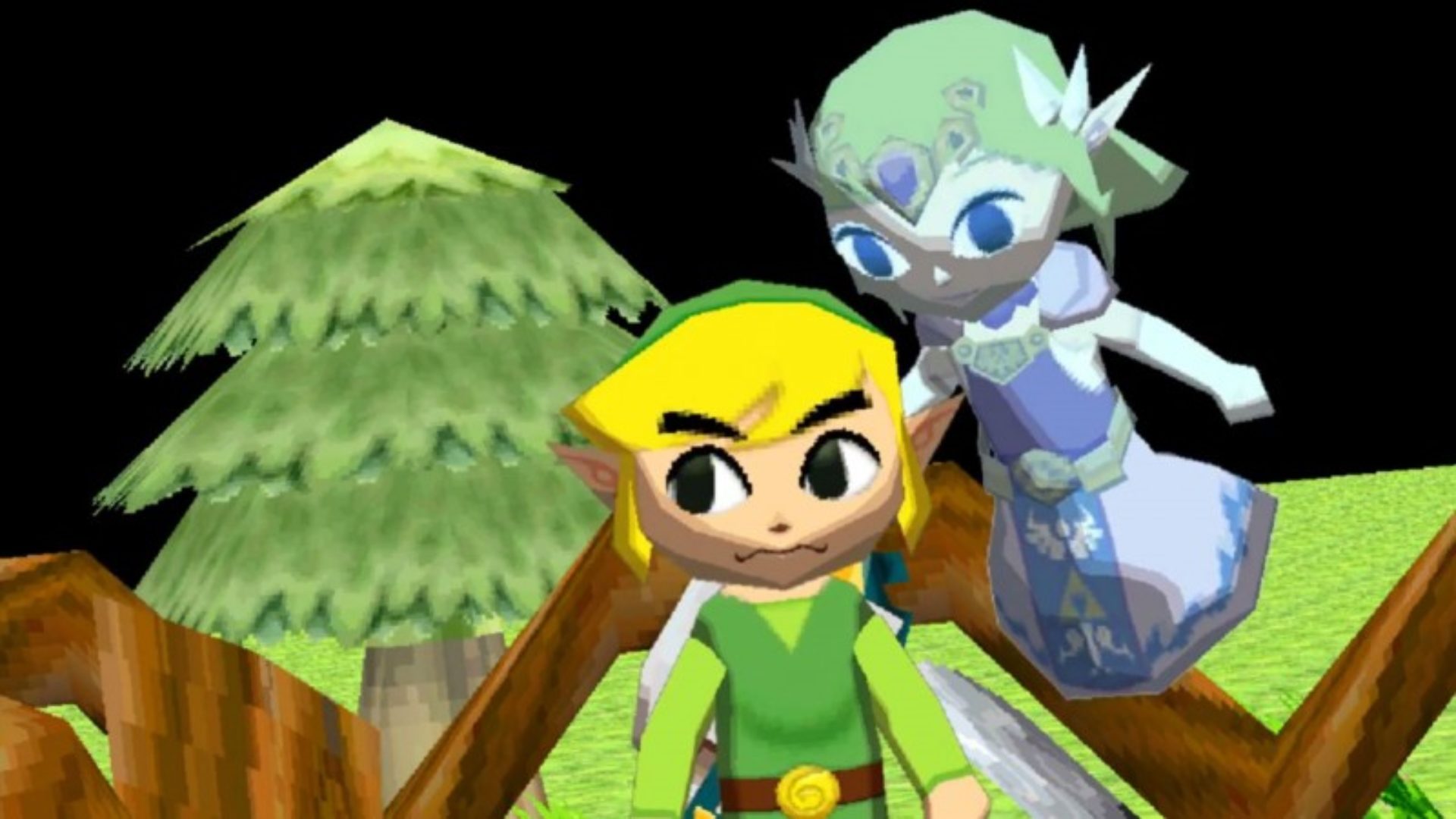
Tying Hyrule Warriors for the biggest fall down our list is Spirit Tracks, crashing down four spots after (arguably) over-performing last year on our list. As always, the controls and parallels to fellow-Nintendo DS game Phantom Hourglass were factors going into its low placement.
“My placement for Spirit Tracks was not very high,” admits Samantha Reynolds. “It’s been a few years (or ten) since I’ve played the game and I’ve only played it once. Phantom Hourglass, on the other hand, I’ve put many, many hours into. I feel as though my ranking comes from a bias that I held against the game as a child. I really loved Phantom Hourglass so I viewed Spirit Tracks as the inferior DS game. I really disliked the train factor, and that tainted the overall game for me, especially when I found a lot of joy sailing in the previous games. I enjoyed playing other Zelda games more, so I never really gave Spirit Tracks a fair chance. I was really young the last time I played the game, so I think I’ll be doing a new playthrough of Spirit Tracks. Maybe I’ll be placing it higher on next year’s Best Zelda Ever!”
Still though, not every comparison to Phantom Hourglass ended up hurting it. In the case of Charles Xavier, it actually made it better!
“Spirit Tracks is not very high in my overall ranking of Zelda games, but for what it is, it does things well enough. After complaining a fair share about the stylus controls with Phantom Hourglass, there was no energy left to continue that criticism. I suppose by the time I played Spirit Tracks, I was already adjusted to the controls, and that made it a better experience. I’ve always liked the train in Spirit Tracks slightly more than sailing in Phantom Hourglass too, since the train felt more original. Spirit Tracks also has some good dungeons and puzzles, a top-marks soundtrack, and interesting characters. I also really liked the lore given to New Hyrule that predates its discovery by Tetra and the Hero of Winds. Since the DS Zelda games are always so close in my ranking, I have to lump them together with any review, and I do think Spirit Tracks is the better of the two.”
“It is too bad Spirit Tracks placed so low, as there is a lot to like about it,” Joseph Berlinger concludes. “While the trains took some getting used to, they added some interesting gameplay mechanics. Train routes grant the capability to perform specialized cargo runs and passenger transport missions. These tasks both added to the lore of the land and made New Hyrule feel like a lived-in place. The countryside is vast and is the largest version of Hyrule to exist outside of Breath of the Wild. The hiccups in the soundtrack and touch controls from Phantom Hourglass were improved significantly in Spirit Tracks, which made the game easier to enjoy. I really like the dynamic between Ghost Zelda and Link. This is the one time the princess gets to go on one of Link’s adventures. Zelda is quirky and fun and adds so much character to the game. Also, Byrne was a competent antagonist with an arc and backstory that is missing from most Zelda villains. If you are willing to get past the weirdness of riding trains in a Zelda game, I would highly recommend Spirit Tracks.”
17. Four Swords Adventures
Highest Rank: 3 | Lowest Rank: 22 | Last Year’s Rank: 16 | Avg Points per Author Played: 7.1
10/29 Editors had not completed the game and did not rank it

The tragic case of Four Swords Adventures continues this year, as it drops a spot down our list. As with years past, the single biggest issue with this game was its lack of availability, as 10 editors had not played the game in any capacity.
“Any chance to return to the Hyrule of A Link to the Past is an opportunity too good to pass up,” says David Lasby, Game Boy Advance in hand. “Though it technically resides in a different branch of the timeline, The Legend of Zelda: Four Swords Adventures reuses the sprites from the SNES classic and, for me, that always guarantees at least some replay value. Getting to fight in battle formations was a fun twist and made for some brilliant puzzles. For as much as people complain about the times that Nintendo deviates from the “normal” Zelda experience, I appreciate that the company is willing to try something new. My frustration with the game is its accessibility issue. Growing up, I didn’t have siblings, nor did I know any other Zelda fans; so for me, using the multiplayer aspect of the game wasn’t possible. I do wonder if the game could thrive on the Switch, because I’d love to re-experience such a unique title.”
Rod Lloyd agreed, adding even more context to how difficult it is to properly experience this game in 2021. “Four Swords Adventures is a tragic victim of modern-day accessibility. Locked on the long-defunct GameCube and best experienced with four units of the equally defunct Game Boy Advance (with link cables), Four Swords Adventures is very, very difficult to experience today. And, perhaps most tragic of all, its greatest qualities are not easily perceived through gameplay videos or Let’s Plays. When played in the proper environment — with four players, four GBA’s, and a GameCube — Four Swords Adventures is an absolute blast. The puzzles and encounters are both brilliant and diverse, the level system makes for simple pick-up-and-play action, and the various competitive aspects — like Force Gem collection and end-of-level rankings — add a satisfying jolt of excitement to every moment of gameplay. These qualities are only elevated by a charming 16-bit art style, an excellent soundtrack, and a collection of fan service that celebrates Zelda‘s history from its first game, to A Link to the Past, to The Wind Waker.”
Despite dropping a spot, Four Swords Adventures can at least boast at having a higher points-per-editor average than a few games ahead of it — suggesting that if more editors had played this game, it would rank higher.
“I have fond memories of playing Four Swords Adventures with my roommates and failing in the stealth mission through Hyrule Castle, laughing and screaming as we tried to dodge the spotlights,” reminisces Michaela El-Ters. “I think that speaks to the strengths of the game: a chaotic but extremely fun multiplayer experience that you can share with your friends on the couch.
“I’m glad to see Nintendo hasn’t completely abandoned Zelda multiplayer, because when it’s done right like in Four Swords Adventures, it’s a blast.”
16. Cadence of Hyrule
Highest Rank: 8 | Lowest Rank: 20 | Last Year’s Rank: 19 | Avg Points per Author Played: 7.36
10/29 Editors had not completed the game and did not rank it
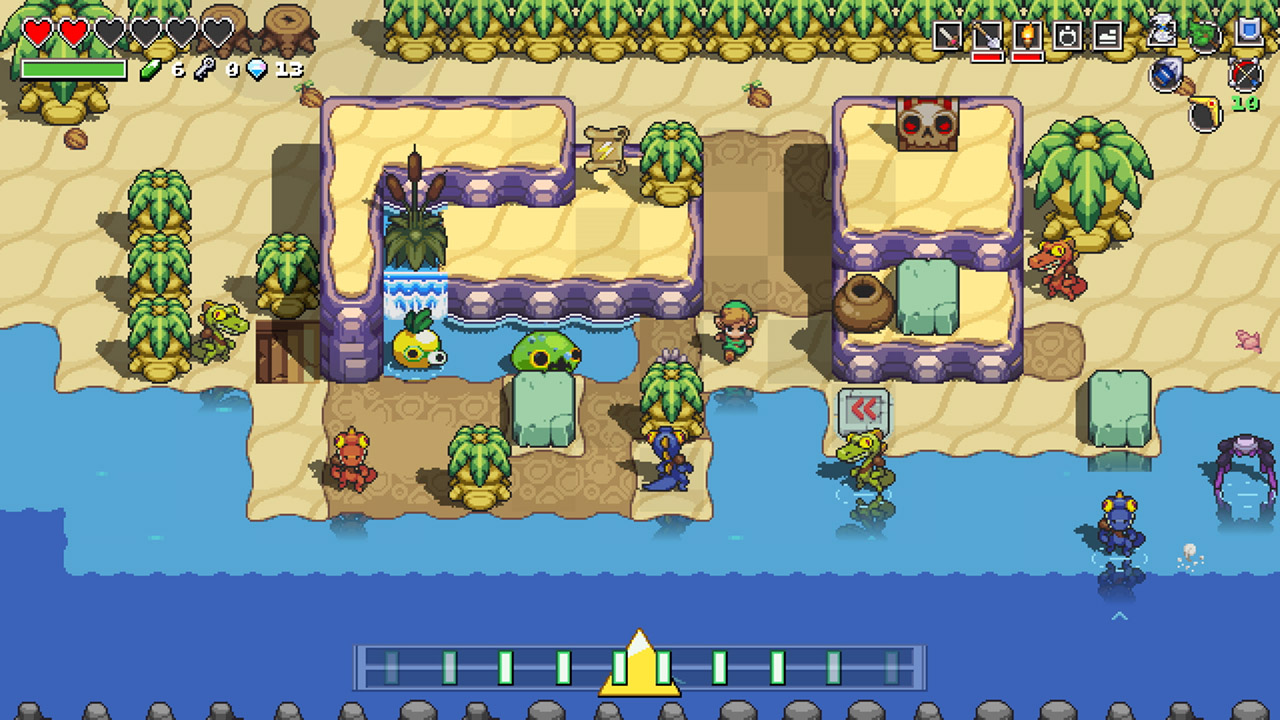
Cadence of Hyrule saw a big jump this year, leapfrogging up three spots and boasting a higher points-per-editor average than a couple games ahead of it. Not a bad year for the rhythm spin-off game, especially considering 10 editors had not played Cadence of Hyrule.
“Personally I love this game; however, it is less of a Zelda game and more of a rhythm game wearing a Zelda skin,” surmises Andrew Gray. “It may not be every fan’s cup of tea, especially when compared to other main series games, but I think this is a great addition to any Zelda lover’s collection.”
“I’ll freely admit that I went into Cadence of Hyrule expecting to be underwhelmed,” recalls Bryan King. I downloaded Crypt of the Necrodancer in preparation for its release and couldn’t get into it no matter how hard I tried. I genuinely love rogue-likes, but something about it just wasn’t clicking with me. I think the developers knew that there would be plenty of Zelda fans like myself with an interest in Cadence but were still a bit hesitant on picking it up. Fortunately, I was completely wrong about this game, and what I thought would be a simple rhythm game ended up being a proper Zelda in its own right. With a multitude of accessibility options available to ease players like me into this musically inspired adventure, Cadence of Hyrule is the ultimate love letter to the endearing melodies that have graced the franchise from day one. A full roster of dungeons, multiple characters to play as, and an absolutely banging soundtrack await those that are willing to get over a very small learning curve early on. Anyone with even an iota of appreciation for Zelda’s music should absolutely download this game ASAP.”
“It’s too bad that, just due to the nature of this being the type of game it is, it will always have a ceiling among Zelda fans, if Zelda fans bothered to play it at all,” Andy Spiteri concludes. “Once you get used to the rhythmical movement, you don’t notice it anymore, so you’re left playing a really fun adventure with a charming art style, challenging map, surprisingly tough dungeons, and a soundtrack that will make you rise up like Frankenstein’s monster. This game blew my expectations out of the park, and I’ll always appreciate Nintendo letting the Zelda series being presented in a different light.
“All I can say is, if you’re a Zelda fan and you’re on the fence about this game, challenge yourself to just take a chance and pick up Cadence of Hyrule. If you do, I guarantee you’ll see why it ranked where it did on our Best Zelda Ever list”.
15. Phantom Hourglass
Highest Rank: 5 | Lowest Rank: 20 | Last Year’s Rank: 17 | Avg Points per Author Played: 5.65
3/29 Editors had not completed the game and did not rank it
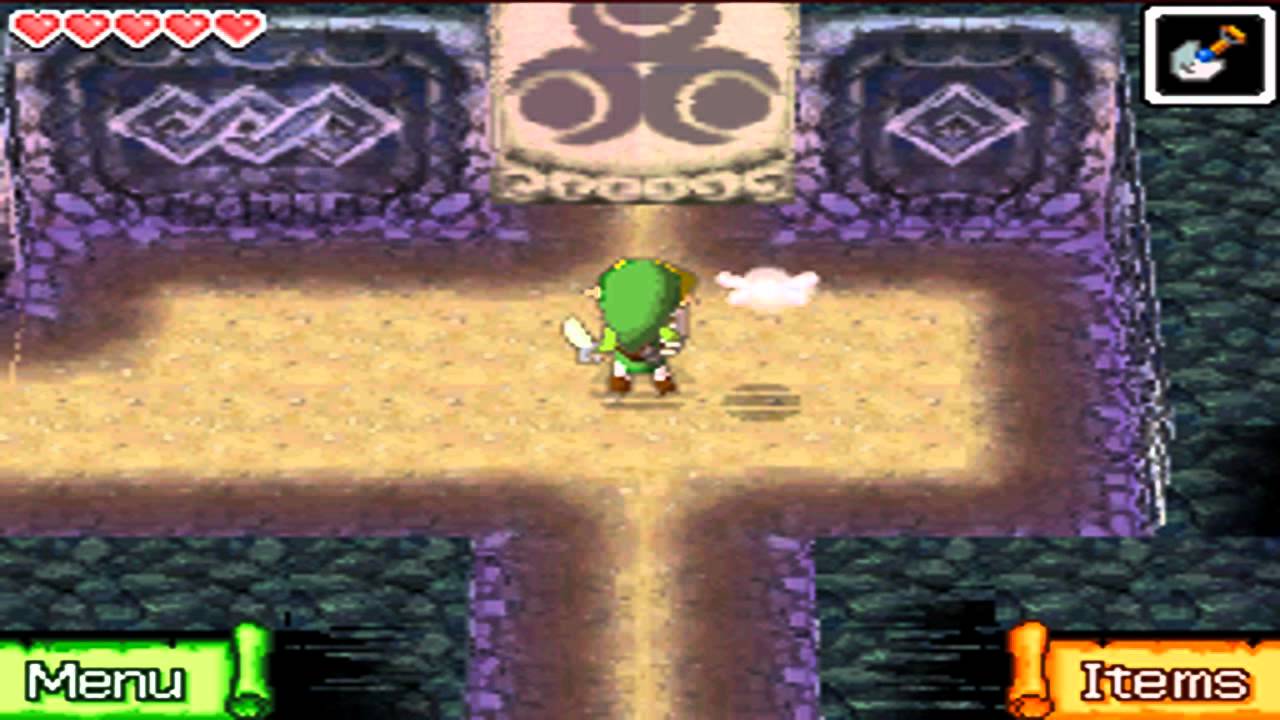
Soaring up our rankings this year is the often beleaguered Phantom Hourglass. Reaching its highest point ever on our list despite a couple last place finishes is an impressive accomplishment, one that defenders of this misunderstood The Wind Waker sequel were happy to bask in.
“Though I am a fan of the game, I can admit that Phantom Hourglass suffered from being the first Zelda attempt on the Nintendo DS,” recounts Joseph Berlinger. “By the series’ standards, this game’s controls were clunky, its soundtrack was mediocre, most of the islands looked the same, and the enemy variety was lacking. That being said, I found a lot more to enjoy in this game thanks to some creative use of the platform’s strengths. Clever boss fights really took advantage of the dual screens. The Cubis Sisters and Crayck in particular were great to go up against. Linebeck and Ceila made for amusing travel companions. Some of the characters got interesting arcs in the story. And the ocean was jam packed with interesting stuff to see and do. For a mobile game, this was a very expansive Zelda project and I appreciate Phantom Hourglass for that.”
Still, despite climbing the rankings, Phantom Hourglass has its detractors.
“I really don’t like the DS Zelda titles,” admits Bryan King, burying the game softly. “I’ve tried very hard over the years to change that, but I just can’t bring myself to appreciate them beyond anything as superficial as their art styles. I really wanted to love Phantom Hourglass given that it was essentially a portable The Wind Waker, but I was astonished at just how little interest I had in it after its first few hours. I don’t necessarily hate the stylus controls — I adjusted to them well enough. My problem with Phantom Hourglass lies in its structure. When it’s being Zelda, it’s fine. Sailing the seas a la the aforementioned The Wind Waker is fun, and dungeons have some clever puzzles that make the most out of the DS’s hardware. What really makes this game fall apart for me though is the recurring Temple of the Ocean King. I can’t help but question who at Nintendo had the delusion that monotony and tedium somehow equates to fun, as you’re forced to replay the same floors and puzzles over and over to progress through its numerous levels. Sure, you eventually reach checkpoints that allow you to skip portions of the dungeon, but it’s implied that you need to replay them anyway in order to conserve precious grains of sand in the titular McGuffin of the game. It’s the first Zelda title I took a hiatus from several times before completing out of sheer boredom. I personally recommend sailing clear of this one.”
Still, though, sometimes it’s the little things than just click with an editor, as it did with Brittany Lindstrom, who leads the team in ranking Phantom Hourglass the highest of anyone at #6.
“Deep, shameful confession time. I absolutely adore Phantom Hourglass but have never completed The Wind Waker,” she writes. “There’s a very particular point in The Wind Waker where I burn out, get tired of the ocean, and never pick it up again; whereas with Phantom Hourglass, every inch of the ocean is a mystery to explore and solve. There’s ghost ships, treasure hunts, map pieces to find, and simple control mechanics that put the emphasis on fun over crunchy gameplay. I loved having a reason to scribble all over the maps, and solving the puzzles felt genuinely rewarding!
“So, what’s the difference? I thoroughly enjoy feeling like a pirate.”
14. The Legend of Zelda
Highest Rank: 5 | Lowest Rank: 21 | Last Year’s Rank: 13 | Avg Points per Author Played: 6.48
2/29 Editors had not completed the game and did not rank it
The game that celebrated its 35th birthday this year finds itself a spot lower in 2021 than it did last year, putting a damper on the celebration. Despite that though, the original Zelda enjoyed a new release this year, heading to the Zelda Game & Watch system, offering a new way to play the oldest game in the series. Unfortunately, being the oldest also means not having the luxury of knowing what worked and what didn’t.
“Appropriately, The Legend of Zelda represents this series in its purist form,” writes Brandon Schmitz. “As the foundation upon which all sequels would build, its place among the most influential video games is forever secured. Having said that, it feels very much like a skeleton — a blueprint — for what Zelda games have become. The core fundamentals are there, but it lacks the degree of personality that has helped define most other entries. For example, there’s a contextual backdrop to the proceedings, but not much in the way of actual narrative. Likewise, the list of NPCs is so small that it’s almost nonexistent. Dungeons are integral to the game, but they lack the distinct themes found in, say, A Link to the Past. If nothing else, this inaugural entry is one that I’ll always respect. For everything it did for not only its own series, but also gaming as a whole, I’m eternally grateful. I just wish I could enjoy it a bit more as a game rather than an icon.”
“There are two ways that you can look at the original Zelda — one, as a video game, and two, as a monument,” agreed Andy Spiteri, his Game & Watch Zelda clock ticking away. “As a monument, we all know what this game represents and what this game created. We owe everything to The Legend of Zelda. But as a game, I’m not entirely sure that it’s as enjoyable to return to as some other classic NES titles. If optimized, Zelda I can be a really fun, quick experience. But if you’re someone that doesn’t play this game often, it’s fairly unforgiving in a way that just makes me want to move on rather than push through. It’s not frustrating like The Adventure of Link, but if we’re honest, it’s not captivating like the next few games in the series would be. But that’s what you get for being the first. We can enjoy the other games in the series so much because The Legend of Zelda showed us what to fix as well as what to build on.”
Mike Midwood drives the point home, finishing with a balance of honesty while paying homage. “At this point, The Legend of Zelda is best appreciated for what it was rather than what it is. By modern standards, it commits a few too many transgressions to truly ‘hold up’ after 35 years. The abundance of cryptic secrets, even along the main progression path, practically require the use of a walkthrough to figure out. Difficulty is high, but mostly because of limiting controls rather than interesting enemy designs or layouts. While I can appreciate the iconography, I can’t give presentational elements like the soundtrack or visuals a favorable comparison to those that would follow. The Legend of Zelda is held back in many ways by the limitations of its era.
“That said, the very fact that it remains basically playable after all these years is a testament to the core ideals of its creation. The Legend of Zelda has blemished over time, but it has aged more gracefully than almost any other game from that period. There’s a palpable sense of progression as the game advances, the player is allowed a degree of agency that wouldn’t reappear until Breath of the Wild, and the amount of content is impressive for a game with such severe restrictions. I can’t ignore the game’s rougher edges, but I have learned to accept and mitigate them, making it easier to enjoy a game of tremendous influence and legacy.”
13. Oracle of Seasons
Highest Rank: 6 | Lowest Rank: 16 | Last Year’s Rank: 11 | Avg Points per Author Played: 9.6
9/29 Editors had not completed the game and did not rank it

Oracle of Seasons took a bit of a fall this year, not outdoing its brother, Oracle of Ages, for the first time in a couple years. As usual, the amount of editors who had not played this title was a contributing factor in Seasons not scoring any higher than it did.
“The fact that Oracle of Seasons is not available on the Nintendo Switch through a remake or Nintendo Switch Online is baffling,” bemuses Sean Gadus, choosing his words diplomatically. “Oracle of Seasons, and its counterpart Oracle of Ages, are games just begging to be discovered by new fans or revisited by existing fans. Seasons and Ages are notable for being part of the small number of Zelda games to be developed by a non-Nintendo studio, with Capcom leading development of the Oracle games. With some novel callbacks to the original NES Zelda game, Oracle of Seasons includes memorable bosses, clever dungeons, and a vibrant, colorful art style. Without spoiling the ending, the final boss in one of coolest 2D battles in series history. Let’s hope that Nintendo will give players some way to experience this game on Nintendo Switch.”
Andrew Gray echoes the sentiment, while paying homage to Seasons‘ history of originally being a Zelda 1 remake. “Oracle of Seasons and its counterpart are a beautiful hybrid of the very first Legend of Zelda and A Link to the Past, taking the dungeon design from the original and the multi-overworld aspect of the latter. I really appreciate the color palette in this game; each season really pops out of the screen, and it makes me really want to explore the entire overworld in each season. Onox is also beyond a doubt one of my favorite villain designs period. For the trope of ‘big armored dude with a big weapon,’ something about his design just seems right to me and really exudes power and creates fear. All in all, I think Oracle of Seasons is a great entry to the series. While I do think the game design of its counterpart is superior, this entry shines in its design, and its graphics captivate me to this day.”
Ultimately, fans will be buzzing about the Oracle games getting a remake until the day it happens.
“I adore Oracle of Seasons as well as its counterpart!” Jill Rosado explains excitedly. “The style mimics the original Link’s Awakening with its classic tune and graphics, but the game is unique for relying on seasons to progress through the map and dungeons. Oracle of Seasons and Oracle of Ages are two excellent games for new fans looking to add to their list of completed Zelda games because it carries such a nostalgic flair. It offers exciting puzzles and challenging levels like any traditional Zelda game, and each season stands out with its lively colors allowing the player to differentiate between them. I love the fact that Oracle of Seasons and Oracle of Ages go hand-in-hand by offering secrets for enhanced gameplay — it’s what makes these games stand out from other Zelda titles.
“I still hope that Nintendo will remake Oracle of Seasons and its counterpart for the Switch!”
12. Age of Calamity
Highest Rank: 3 | Lowest Rank: 21 | Last Year’s Rank: N/A | Avg Points per Author Played: 8.52
6/29 Editors had not completed the game and did not rank it

The entry with the most intrigue around it this year was undoubtedly the newcomer to the list, Hyrule Warriors: Age of Calamity. While the original Hyrule Warriors game was certainly an acquired taste, the sequel was set firmly in the Breath of the Wild universe, largely expanding the pool of players who may have otherwise passed. Age of Calamity wasn’t without controversy though, as the story — a major selling point of this title — didn’t exactly live up to the expectations fans — and frankly, Nintendo — had set, so reaction among the Zelda Dungeon staff ended up mixed.
“Hyrule Warriors: Age of Calamity takes all of what worked for the first Hyrule Warriors game and applies a semi-canonical Breath of the Wild story to the formula,” admits Andrew Millard, himself a unapologetic old school gamer. “And what worked for people, really worked. The popularity of the Warriors games comes as a surprise to me. Not that I don’t get the appeal of the super-powered, frenetic action of Musou games — I just find it short lived. Cutting through swath after swath of enemy waves gets repetitive quickly. And where other heat-based games bank on multiplayer or increasingly slim survival chances, Musou games seem to be accomplished with sheer time dumps, which further adds to my surprise that their fans pour hours into playing them. The somewhat-promised aspect that Age of Calamity would provide important story reveals about Zelda and her Champions was great bait for a reluctant Warriors player like myself, but even that was ultimately a bait and switch. If I’m going to play a semi-canonical horde-killing game, I’ll take Link’s Crossbow Training.”
Heather Beard disagreed, arguing Age of Calamity was a logical next step for the Hyrule Warriors franchise. “Hyrule Warriors: Age of Calamity honestly surprised me. I have hours and hours poured into the first Hyrule Warriors game, so I expected much of the same when Hyrule Warriors: Age of Calamity rolled out. What surprised me was the difference between the two and how Hyrule Warriors: Age of Calamity tied so much into Breath of the Wild. The story was charming, albeit a little cheesy at times, and the game improved on so much from the first entry in the series. Unlike Hyrule Warriors, where there always seems to be something to do, Hyrule Warriors: Age of Calamity does have less content than its predecessor, even with the DLC. Despite that, Hyrule Warriors: Age of Calamity delivers on its story, lovable character additions, and gameplay. I mean, who could not fall in love with the little guardian, Terrako?!”
Seeing where Age of Calamity falls next year will be one of the more fascinating aspects of our 2022 list. But for this year, ultimately David Lasby was Age of Calamity’s biggest champion (pun intended), ranking it as his third favorite Zelda game.
“I was always going to love this game. As a huge fan of Hyrule Warriors: Definitive Edition, I was primed to fall in love with Hyrule Warriors: Age of Calamity. What I didn’t expect was for this game to launch firmly into my top three Zelda games of all time. The first weekend that the game released still feels like a fever dream to me; I played straight through the game, dangling from every cliff-hanging chapter end, gasping at each beautifully rendered cut-scene. The idea that a timeline split is somehow problematic? Hello — have you played other Zelda games? Timeline splits are as much Zelda as Monster Cake.
“What I love about this game is its attention to detail,” David continues. “The partnership between Nintendo and Koei Tecmo worked brilliantly, and it’s clear how much the development team cared about the source content. For example, the way the Sheikah Slate is so seamlessly integrated into combat feels incredible. More than anything though, Age of Calamity was successful in building tension on a grand scale. I’ll never forget the literal jaw-drop I had when the Blood Moon resurrected Calamity Ganon’s entire army that I had barely survived fighting in the first place. This game promised epic, exciting battles, and that is exactly what it delivered while telling a gripping story that filled in the Calamity’s history in a rather unique way.
“Can we at least all agree that the final boss fight is the one we deserved in Breath of the Wild?”
11. Oracle of Ages
Highest Rank: 3 | Lowest Rank: 16 | Last Year’s Rank: 12 | Avg Points per Author Played: 10.47
8/29 Editors had not completed the game and did not rank it
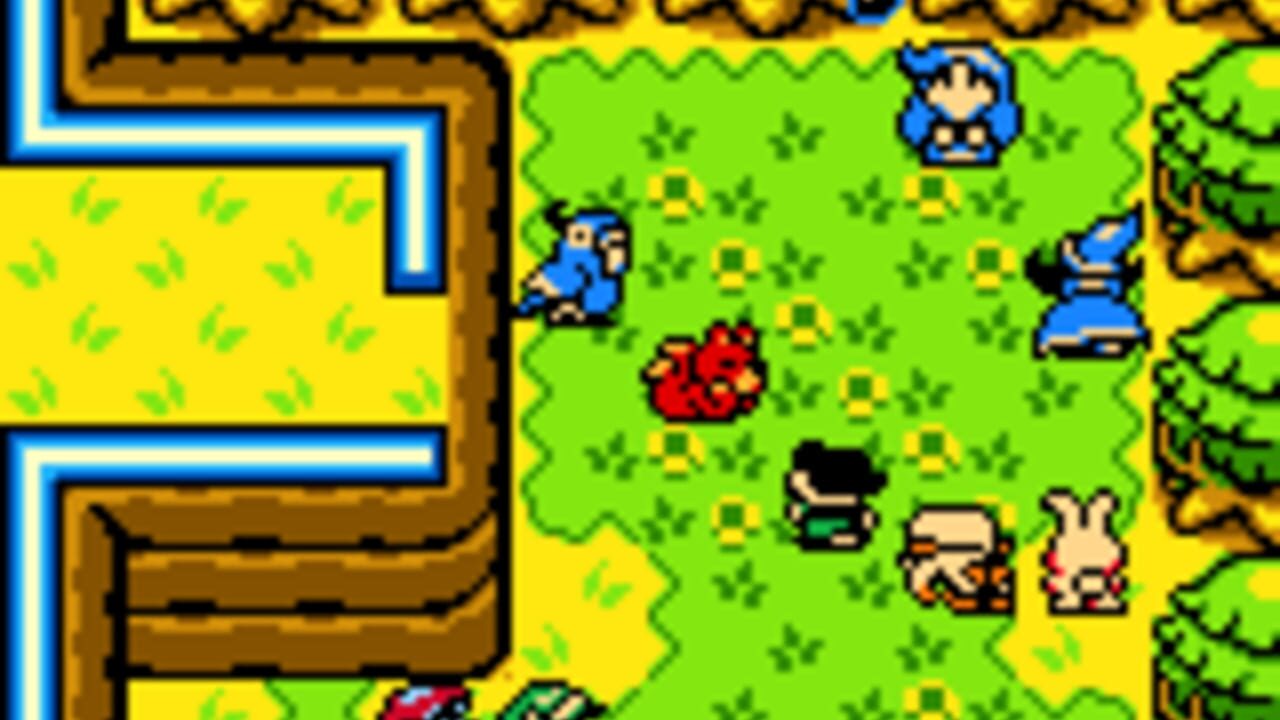
Oracle of Ages finishes first among the group of Zelda games that seem unable to advance into the top 10, an accomplishment… and a reminder that the gap between the 10th place game and 11th place continues to grow. Never the less, Oracle of Ages outplaced its counterpart and made a strong impression on some new players.
“I actually played Oracle of Ages for the first time ever this year, and I have to say, I thoroughly enjoyed it!” says Alasyn Eletha, who played the game to review it for The Champions’ Cast. “While I had a few issues with the game, namely the excess of nearly identical dungeons and Crescent Island, there were so many things that I absolutely loved. The puzzles were creative and really made me think. Zelda puzzles just have a way of making me feel like a genius when I’m able to figure them out, and this game took that and ran with it. I also really liked a lot of the sprite work, especially the Zora. And I could never forget how fun and charming some of the music and themes were as I was playing. In the end, I was really glad that I was finally able to take this off my list of Zelda games I had yet to play!”
“Oracle of Ages and its counterpart, Oracle of Seasons, marks one of the only instances of linking two seemingly separate stories for a holistic gaming experience,” agrees Michaela El-Ters. “Oracle of Ages introduces a lot of unique mechanics that I’m sad haven’t returned in another Zelda game (see: COMPANIONS that have unique abilities for progression!), and the difficulty spikes are challenging but very rewarding. I’m also an absolute sucker for time travel stories, which Oracle of Ages has in spades, along with a surprising rival in Ralph who maybe inspired subsequent rivals-turned-allies like Groose. I hope these two games get a remake, because they deserve more love.”
Oracle of Ages (and Seasons) getting into the hands of more players, either by the way of a remake or Nintendo Switch Online, would seemingly give it the boost it needs to contend for the top 10 spot.
“I think what I love most about the Oracle games is how visually unique they are,” says Brittany Lindstrom. When you look at the art and design you instantly know which game they belong to and what kind of adventure you’re stepping off into. Impa has a vastly different body type than what Nintendo typically gives her, Link looks like he stepped right out of a manga, and Veran has one of the most unique antagonist designs in the entire franchise.
“And that visual individuality flows into the level design, story, and music. Capcom took everything we love about Zelda titles and gave their Oracle games a treatment that makes the Zelda tropes feel fresh and new. Sometimes the best thing Zelda Team does is hand off the game development reigns to an outside studio!”
10. The Minish Cap
Highest Rank: 1 | Lowest Rank: 18 | Last Year’s Rank: 10 | Avg Points per Author Played: 12 | First place finishes: 1
5/29 Editors had not completed the game and did not rank it

For the fourth year in a row, The Minish Cap finds itself stuck in a rut at the 10th spot, despite for the first time ever having an editor rank it as their absolute favorite Zelda game.
“The Minish Cap is my favorite Legend of Zelda game this year,” says Andrew Millard, seeing the lights of truth. “It may seem like an odd choice, or even a hot take to some. But, honestly, after replaying it this past year, I realized something subtle, but huge: the game never once disappointed me. Each part of it is competent and polished to a luster rather than a sparkle. No single trait or mechanic outshines another, so that it is truly greater than the sum of its parts. Sure, you might argue that’s damning with faint praise. But honestly, The Minish Cap is the platonic ideal of 2D Zelda. It’s humor and whimsy aren’t ridiculous. It’s attempts at heartfelt character development are pleasant, but not maudlin. The setting and supporting cast, especially guide-kick Ezlo, are perfect. The Minish Cap’s entire aesthetic is one that I truly hope is revisited someday. If you have access to an older Nintendo system, do yourself a favor and track it down on cart or eShop.”
“I often describe the success of The Minish Cap as every good thing about two-dimensional Zelda games mashed into one game, and then some,” agrees Alex Weber. “The dungeons are unique and creative and sew in dungeon items seamlessly. The enemies are fair. And sidequests don’t require the sum of my patience, but instead unlocked by Kinstone fusions which are frankly a joy to piece together, an opinion likely shared by those like me who are not 100%-ing, but rather playing the game casually. The art design is reminiscent of The Wind Waker, and thus is just as charming, and the music is one of the best of the series, my personal favorite track being ‘Palace of Winds.’ The only downside to this underrated classic is that it hasn’t yet been released for the Nintendo Switch!”
Calculated, practical, and right on the money is Rod Lloyd, who offers this apt analysis of The Minish Cap:
“The Minish Cap truly is the complete package, the standard that all future top-down Zelda titles should aim to satisfy. The world, characters, storytelling, art style, dungeon design, and musical compositions all come together to create a charming and memorable adventure that inherits the best of Zeldas past and sets the stage for the games to follow. The only elements holding it back now are minor technical limitations laid at the feet of the aged Game Boy Advance hardware — such as low visual resolution and compressed audio quality — and its comparably lesser historical value in the face of classics like A Link to the Past.”
“Perhaps with a few more years under its belt and hopefully an enhanced re-release, The Minish Cap will be better remembered as the excellent Zelda title it has always been.”
9. A Link Between Worlds
Highest Rank: 1 | Lowest Rank: 12 | Last Year’s Rank: 6 | Avg Points per Author Played: 13.5 | First place finishes: 1
3/29 Editors had not completed the game and did not rank it
Though some would perhaps say that the sequel to A Link to the Past overachieved last year, A Link Between Worlds still had a disappointing drop on our list this year, despite being almost universally regarded as one of our writers’ more favorite Zelda games.
“I adore this game!” Alasyn exclaims. “And I’ve actually made it a personal goal to play it at least once a year. It’s a little on the easier side compared to other Zelda games, but the puzzles are still just as clever and fun to work out. The story has a few twists that are compelling and exciting. And I don’t care what anyone says, Yuga is such a fun villain. The guy sings his own theme songs. How can you not love that?”
Andrew Gray can’t help but agree. “When I first played this game, I was hesitant. A sequel/remake of the game that defined the series as is? How good could it be? The answer as it turns out is amazing! Both a trip of nostalgia and expansion into new domains, I found the combination of classic Zelda elements with newer ideas (unique item shop, access to the Dark World) to make this entry a great addition to the franchise.”
“It’s no small claim when I say A Link Between Worlds takes everything I love about A Link to the Past and makes it better,” John proclaims before going into detail about the game’s many pros. “This game really has it all: nostalgia, character, world, unique gameplay, side content (Streetpass battles), post-game content (Hero Mode), freedom, fun, and most importantly, consequences! While the ability to do almost any dungeon in any order is undoubtedly one of the game’s greatest features, unlike most other Zelda titles, it has a sense of consequence with its item-rupee system. Now, dying doesn’t just make you restart — it makes you lose your items, and your money. This feature can be just as entertaining as it is frustrating. While it can be infuriating to lose your items and have to spend your well-earned rupees getting them back, it can just as equally make you feel more engaged by changing how you approach enemies and obstacles.
“Without a doubt, A Link Between Worlds is truly the player’s game.”
8. Link’s Awakening
Highest Rank: 2 | Lowest Rank: 17 | Last Year’s Rank: 8 | Avg Points per Author Played: 12.57
1/29 Editors had not completed the game and did not rank it
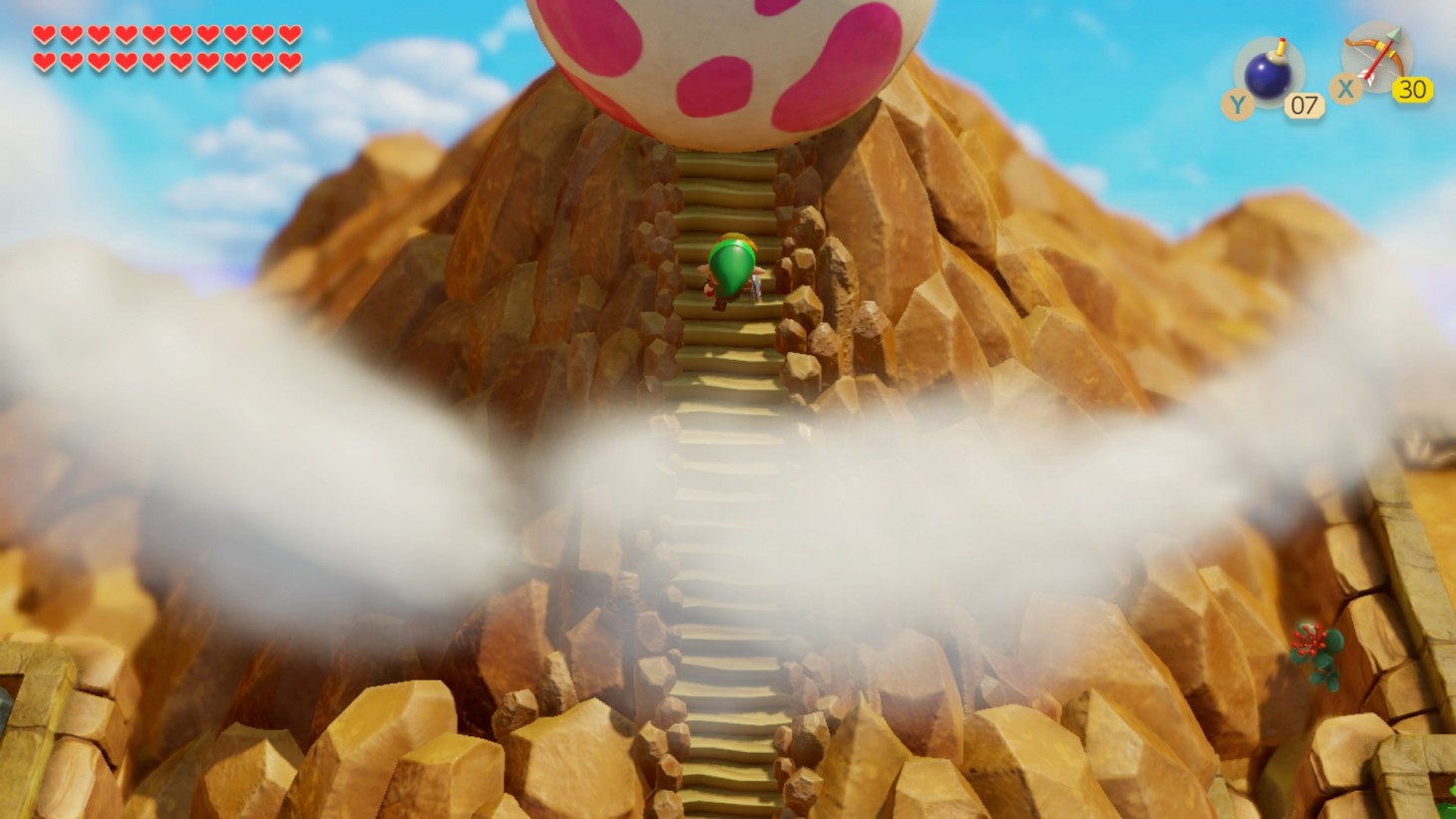
Holding its position for the second year in a row is Link’s Awakening, a game that sees itself stagnant despite its wider availability through its 2019 remake.
Judy couldn’t wait to sing its praises. “Link’s Awakening HD hits every spot for me. I absolutely love the cute, whimsical style of this game, and the music is just dreamy too. I found the boss battles challenging until I really understood what I was supposed to do, but ultimately it was the dungeons that really made this installment feel so special. Navigating through dungeon chambers until I finally reached the end offered real satisfaction, and the Color Dungeon was a really neat addition too, feeling like bonus content. I think Nintendo did a wonderful job of bringing this title to life on the Switch and I want to see more of the same going forward.”
“I adore Link’s Awakening,” Michaela adds. “This game is a bit of a departure from other Zelda games, with fun Easter Eggs to other games and a deep story exploring existentialism and dreams that makes me cry every time I watch the ending. It’s a beautiful game, and the remake expertly captures the spirit of the original while modernizing the graphics and gameplay.”
Bryan agrees, but goes a little more in depth about his first experience with the game. “Playing Link’s Awakening back when it launched was a surreal experience. I had had my Game Boy since launch, and while I loved it, games typically felt like appetizers, teasing a main course that could be had on the NES and SNES. I fully expected this to be ‘bite-sized’ Zelda with a few dungeons, minimal side quests, and a handful of equipment. I couldn’t have been more wrong, and Link’s Awakening’s presence on the Game Boy is still in my opinion the greatest testament to what the handheld was capable of. This was a full, fat Zelda adventure that has arguably the best story and soundtrack in the entire franchise. The ending still flits about in my mind over 28 years later, and its become such a beloved installment that Nintendo saw fit to give it a worthy remake on Nintendo Switch that I feel absolutely lives up to its legacy. Anyone that’s played Link’s Awakening can probably agree with me that it’s the thing that dreams are made of.”
7. Skyward Sword
Highest Rank: 1| Lowest Rank: 16 | Last Year’s Rank: 9 | Avg Points per Author Played: 13.12 | First place finishes: 1
1/29 Editors had not completed the game and did not rank it

A very welcome jump up the list — which isn’t surprising after its port to the Switch earlier this year — is made by Skyward Sword. It has always managed to stay in the top 10, but there are definitely a few members of staff who are happy to see it slowly creeping towards one of those top 5 spots.
“It’s a thrilling adventure filled with a heartwarming love story and a redemption arc for the hardened and yet heartbroken bully,” Alex gushes. “It’s a story of new beginnings and old legends, a prequel that originates the Master Sword and the Hylians and predates Hyrule itself. It’s a game that, in my book, is only second to Breath of the Wild and quite deserves that spot. Skyward Sword is filled to the brim with an entertaining adventure, dungeons and puzzles unique and some of the best in the series, a host of characters taking on a life of their own, and music an evocative journey in itself. Although I’ve fought The Imprisoned far too many times for my liking, the positives of Skyward Sword are so powerful in my mind that I often forget that transgression. Skyward Sword is a treasure, a must-play for any Zelda fan.”
Always a true advocate for Skyward Sword, Alasyn adds, “With the release of the highly anticipated HD port to the Switch — with regular game controls no less — I truly believe that this game can be more easily accessed and played by those that never gave it a chance before. If any game deserved a redemption, it was this one. The graphics are much more clear, as the original had been released just a year or two short of the HD era, and the colors are so much more captivating. And need I really say anything about this game’s story? Regardless of whether you enjoy the original or the port, the regular controls or the motion controls, this game is truly one of a kind. I’ll never get tired of being swept up by the enchanting soundtrack or the compelling adventure. Never.”
“Skyward Sword used to be near the bottom of my ranking of Zelda games, but after replaying it, I grew to appreciate it a bit more,” Charles says. “This game’s strengths come from its fantastic soundtrack, art direction, and dungeon design.”
But while he has a newfound appreciation for the game, he, like many others, still has some very fair criticisms about the experience overall. “As for the game’s story, I still think a lot of the plot points don’t work. For example, Hylia gave up her immortality so that the Triforce could one day be used, but we never get an explanation as to why that sacrifice ties into how the Triforce functions. After some deep analyzing, Hylia shedding her immortal status is entirely pointless. Fi’s Farewell doesn’t work as a tearjerker moment for me because I didn’t feel Fi changes to be more compassionate/human. Groose’s character reversal is the sole highlight of the game’s story since it’s the only dynamic character arc that does what it sets out to do well. Still, there are better Zelda games when it comes to narrative.
“I really prefer Zelda games that have a proper overworld. The Sky serves more like a hub world between the regions of the surface, and it lacked engaging content. Fun fact: There are about 46 floating objects in the sky, counting Skyloft. There are 7 named islands, and 11 unnamed ones that can be landed on. Meanwhile there are 28 floating rocks that can’t even be landed on. There are more rocks in the Sky than islands to land on; let that soak in. While I can’t put the game as low as I used to anymore, I still think it is definitely a middle-of-the-road Zelda game for me.”
6. A Link to the Past
Highest Rank: 1 | Lowest Rank: 18 | Last Year’s Rank: 7 | Avg Points per Author Played: 13.5 | First place finishes: 1
1/29 Editors had not completed the game and did not rank it
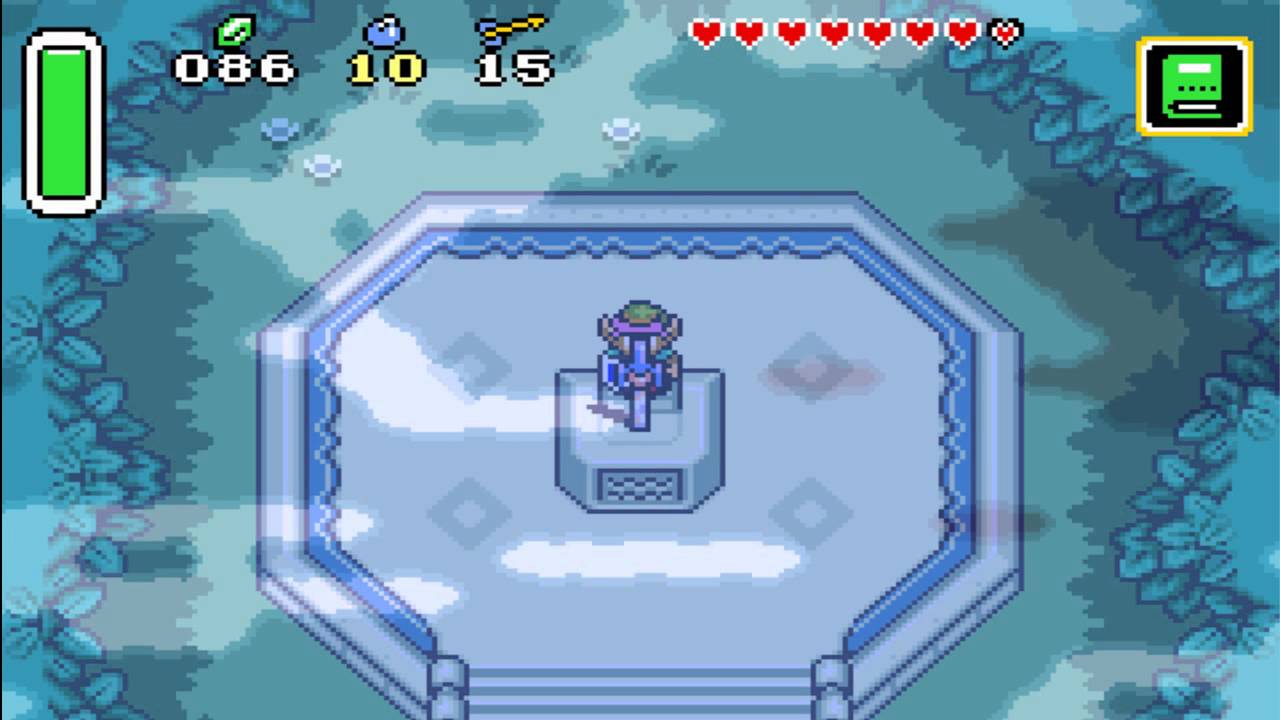
A Link to the Past has hurdled back over A Link Between Worlds this year, taking a prestigious spot at 6th place. To many from our staff, A Link to the Past is a perfect Zelda game and perennial contender, frequently coming in first place among the 2D Zelda titles. Unfortunately for the SNES masterpiece, it’s had difficulty overcoming some of the larger 3D titles.
“It’s the rare unicorn of the video game world, a flawless game from start to finish,” David Lasby states admiringly. “I play the game every year, a tradition I started back in 1991 as a wide-eyed seven-year-old; no matter how many times I take the journey, my love for the game never diminishes. The game managed to improve the sense of exploration and wonder found in the original, but did so while telling an immersive story in 16-bit graphics. While technology has of course improved dramatically, the fact that the game holds up even in today’s gaming environment speaks to how well the game was designed.”
David Nystrom can’t agree more. “A Link to the Past stands out as one of the all-time greatest entries into the series. It is iconic in nearly every way. From the map, to the story, to the bosses, to the dungeons, the list goes on and on. When it comes to the early generations of gaming, before 3D was the “only way to go,” A Link to the Past was the standard. I first played sometime around 2010, when I purchased it on the Wii Virtual Console. It was a blindspot for me in gaming up to that point, and one I was sore about considering I was already a massive Zelda fan. I tore into the game, seeing all the things that later games copied or adapted for their stories and really felt that this game did a remarkable job introducing those to the gaming world. The ending of that initial run was unforgettable for me; final heart beeping, Ganon in his final stage, no Fairies, and no do-overs because it was close to 2 a.m. I landed the final blow and leapt off the couch as Link claimed the complete Triforce. It was such a satisfying moment.”
“This is one of the few Zelda games that I am always interested in replaying,” Alexis says. “The overworld is big, but not too big. The locations are memorable (Misery Mire, anyone?). The story is somewhat thin, but laid out in a compelling way — especially since it gets you incredibly invested in Princess Zelda’s well-being right away. The music is iconic; “Sanctuary” is one of my all-time favorite Zelda songs. The dynamic dual-world structure kept things fresh, and rightly became a staple of the series. And the mix of combat, exploration, and puzzles is great and flows so well.”
5. Majora’s Mask
Highest Rank: 1 | Lowest Rank: 17 | Last Year’s Rank: 5 | Avg Points per Author Played: 14.03 | First place finishes: 2
0/29 Editors had not completed the game and did not rank it
Once a game that topped our list as the Best Zelda Ever, Majora’s Mask now finds itself staying in 5th spot for the second year in a row, narrowly losing out on the 4th spot by just a few points. Though maybe not the most accessible Zelda title for newcomers, its impact and atmosphere have made it a Top 5 game every year in our lists.
“Majora’s Mask is a strong game in the series because it is so unlike other Zelda games,” Heather states. “It’s dark, it presents a unique challenge with the clock, and it deals with different aspects of the human condition that I found to be deep for a series like The Legend of Zelda. Additionally, Majora’s Mask has some of my favorite promo art in the entire series; it’s just beautiful.
“Challenge and artwork aside, the game does present a different direction for the timeline of the Zelda series, and I love how Majora’s Mask sets that stage. It’s a unique entry in the Zelda series that deserves its fair chance, despite how frustrating it might be to have the Moon destroy the world when the clock strikes zero.”
While Charles may not be fully on board with the narrative in Skyward Sword, Majora’s Mask is a different story.
“It’s the pinnacle of story in Zelda, not only having an engaging main quest, but a variety of fantastic side quests that are worth spending time completing. Nearly every NPC has something interesting to learn about them as well, regardless of whether they are tied to a side quest that rewards Link with a mask or not. Additionally, the various broader themes in play with the story are resonant and truly make the game stand out. At the end of the day, I think the story and side quests are what takes this entry over the top; and yes, nostalgia is a factor in why I place it over Ocarina of Time. As a kid, it blew my mind that Ocarina of Time got a sequel, so naturally Majora’s Mask was the coolest game to exist. I guess it’s still the coolest game for me after all these years!”
As well loved as Majora’s Mask is, though, there are still some reasonable critiques out there that give us an idea of why it can’t quite breach that 5th spot on the list.
“When we wrote up 2020’s Best Zelda Ever, I had listed Majora’s Mask as my number one pick,” Emi explains. “I’d always loved its dark foreboding tone and unique approach into exploring the lives and emotions of its NPCs through side quests. A year and many articles later, Majora’s Mask has fallen to my number three slot. I still love it very dearly and do still play it on the regular for comfort, but I’ve begun to find issues with it that mirror many of my issues with Ocarina of Time. It bears a lot of the burdens that older games do in suffering from sloggy menus and poor camera control. The stories just don’t grip me as much anymore, and honestly, looking under games with a more critical lense, I’ve realized titles like Breath of the Wild, Twilight Princess, and The Wind Waker have their own depth in their NPCs. If anything, the dark storyline has turned needlessly broody to me as I come to appreciate the nuances in writing for games.
Still, it remains a favorite despite that though,” Emi amends. “The three-day mechanic, while controversial, is still one of the most unique concepts in the entire Zelda series. It also remains the king among Zelda games for optional content, only rivaled by Breath of the Wild in my opinion. I also acknowledge that it is really the first game to make me think about the reality of my own mortality. I may not love it as much as I have before, but it still holds a very special place in my heart.”
4. The Wind Waker
Highest Rank: 1 | Lowest Rank: 14 | Last Year’s Rank: 4 | Avg Points per Author Played: 14.2 | First place finishes: 4
0/29 Editors had not completed the game and did not rank it
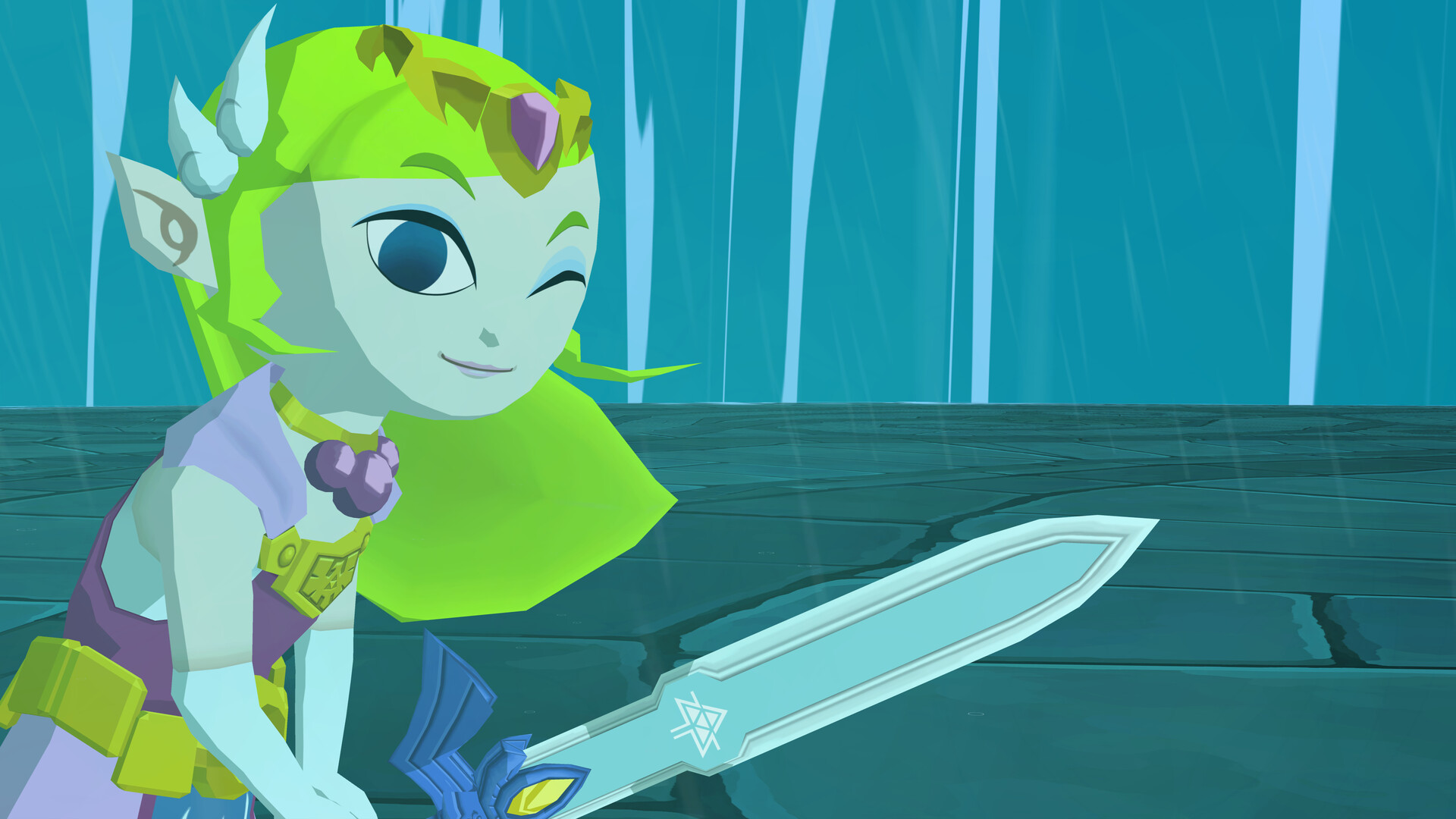
The Wind Waker sails past Majora’s Mask, also holding on to its 4th spot two years in a row!
“The Wind Waker has just the right mixture of freedom and linearity to keep me satisfied,” Joseph explains. “It had distinctly charming visuals and sound effects that made the game really endearing to me. While The Wind Waker‘s item selection isn’t very unique, the game polished the use of each tool to make them really slick and quick. Battling monsters and getting around the world are such a fluid experience thanks to these improvements. The game’s low difficulty makes The Wind Waker a great opening Zelda game for anyone new to the franchise. That being said, there is also enough to do to keep veteran players engaged.”
Alexis doesn’t quite agree, but did have some positive things to add. “I sometimes feel that I missed something in my playthroughs of The Wind Waker, because it doesn’t occupy a particularly special place in my heart. I think it’s sweet and I love the music, but I find it plodding at times and exceedingly easy. Low difficulty does not usually bother me, but I think because much of this game is spent on the water I wish that the periods of activity were more challenging. With that said, there is a lot to love about this game. It is maybe the quirkiest Zelda game — a private island with an A.I. butler, forced labor on Tingle’s island, a rags-to-riches girl falling in love with a Moblin, Tetra’s whole pirate crew, the list goes on. It is also amazing to get insight into Link’s family life, as he so rarely has family members in the games. The story and characters are great, and visiting underwater Hyrule Castle was a real highlight. If there was more to chew on in the gameplay, this would easily rise to the top of my list, but I just tend to forget all the best parts of it because I didn’t have to earn them.”
“Many Zelda fans have their title they return to again and again, and, despite how many times they’ve seen it through, it continues to charm and wonder them,” Emi argues. The Wind Waker is that game for me. It covers all the standards of the Zelda formula well, but there’s something a little extra in this game that I don’t think any other game in the series captures: that being an incredibly defined sense of character.
“All Zelda games have their moods and themes, but The Wind Waker gave me so much more of a feeling of being alive. Every design decision in this game has so much deliberate feeling to it. Even the ordinary enemy mooks have distinct personalities to their behavior. Moblins get petty over having their weapons thrown away, Darknuts resort to hand-to-hand combat when disarmed. Link, while still of course mute as always, has a clear defined identity to him beyond just the archetypal bumbling hero. He goes through grief, concern, embarrassment, and maturity. The Wind Waker truly captures a living world far more than any other title in the series, and that is why I regard it the best in the series.”
3. Twilight Princess
Highest Rank: 1 | Lowest Rank: 18 | Last Year’s Rank: 3 | Avg Points per Author Played: 14.34 | First place finishes: 4
0/29 Editors had not completed the game and did not rank it
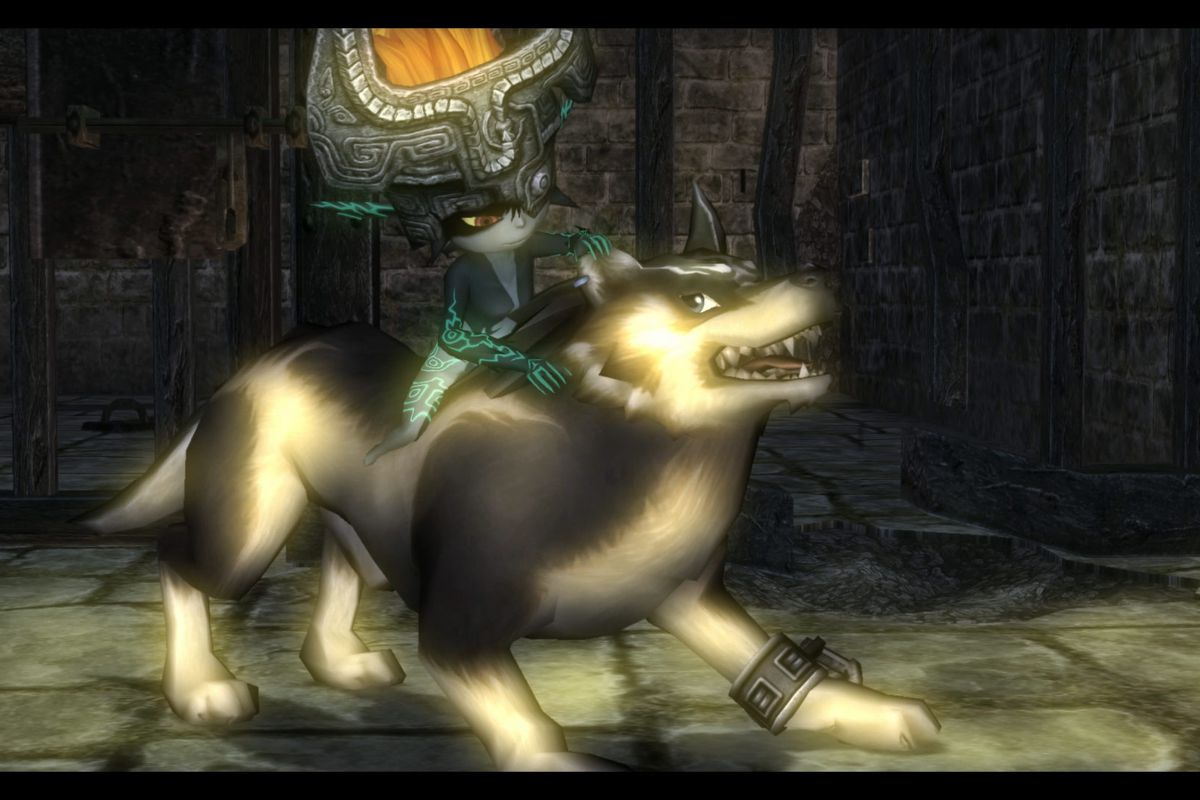
At last, we have reached our top 3. Despite topping four editors’ lists as their favorite Zelda game, Twilight Princess again finds itself retaining the same spot as last year. Beloved by many and released as a launch title for the most successful (as of this writing) Nintendo console, it’s no surprise to see Twilight Princess remain in the top 3 for the third year in a row.
Brittany is quick to gush about this epic adventure. “Did I have a substantial emo and goth phase in high school? Yes. Do I also have a deep, unrelenting love for My Chemical Twilight Princess? Absolutely. This Zelda is a departure from Saturday morning cartoons into gothic high fantasy. The pivot is done with style and class. Hyrule feels ancient and brimming with history. The music is filled with scores that stick with you long beyond the end credits. And, my God, the story is so good. It’s the first game I played that I felt really built on the lore of its predecessor.
“What I love the most, is that this is a Hyrule that came into being because of Zelda’s decisions at the end of Ocarina of Time. Yes, the world in The Wind Waker suffered because Link wasn’t there. But in this timeline, Hyrule is manipulated by a Ganondorf consumed by the lust for revenge. It really shows that, no matter what decision Zelda makes, she cannot stop the ceaseless struggle over the Triforce. This world has its hero, but it’s no happier for it.”
“Twilight Princess did what I had been waiting for a Zelda game to do throughout my teenage years: go just a bit darker,” Andrew Millard says. “The world of Hyrule feels a little more dreadful. The combat has more weight — featuring my favorite take on swordplay in the series. And the aesthetic pendulum swung nicely away from the toon vibe of The Wind Waker (as much as I love that look as well). All Zelda games offer grand adventure, but Twilight Princess‘ tone sells the grandeur in a way that best reveals why so many people see its DNA in FromSoftware games.
Mike has mixed feelings about the game, but ultimately finds the experience rewarding. “On paper, evaluated according to my typical Zelda values, I shouldn’t love Twilight Princess nearly as much as I do. The dungeons are plentiful and thematically stunning, but with few exceptions, navigating them is a simplistic formality. This iteration of Hyrule has some of my favorite locations and characters, unfortunately all portrayed in one of the series’ ugliest visual styles. From the game’s earliest moments, a sense of discovery is established, then undermined by restrictive linearity and constant story or tutorial interruptions. In purely technical terms, everything the game does well for me has a nagging issue that makes it less than it could be.
“As an experience, however, Twilight Princess sticks in my heart and mind with games I consider vastly its superiors. There are moments in this epic that resonate more powerfully than anything before or after. Boss fights like the Stallord skate park are incredibly climactic, and the sacrifices of Zelda and Midna are genuinely affecting. I would argue that Zant is one of the series’ most compelling villains and the soundtrack hits the perfect emotional notes throughout. Few games manage to instill a sense of true adventure like this one. Twilight Princess can be slow and shallow, but is also an incredibly dramatic experience. Not quite a masterpiece, it’s among the best of the rest.”
2. Breath of the Wild
Highest Rank: 1 | Lowest Rank: 12 | Last Year’s Rank: 2 | Avg Points per Author Played: 15.24 | First place finishes: 4
0/29 Editors had not completed the game and did not rank it

Breath of the Wild has an impressive track record on our annual list. This will be the game’s third year standing in 2nd place, but it has remained in the top 3 since its launch, a feat only one other game can say that it’s accomplished. With three appearances, Breath of the Wild actually finished atop fewer lists than Twilight Princess, which had four top scores; it remained maybe the most consistent game on the list appearing in a whopping 20 out of 29 editors’ Top 5.
“I believe Breath of the Wild is the Ocarina of Time for new Zelda fans,” Jill points out. “With its massive open world, gorgeous landscapes, and ambiance — Breath of the Wild offers a fresh take on the Zelda franchise. I remember feeling so captivated with the world that I often forgot what quests I had to do! Instead, I explored, climbed, and discovered Shrines along the way to the point I was feeling more like an adventurer instead of a hero. While I do love this game, I am slightly critical of it. I miss the traditional dungeons, which I found the Divine Beasts to be lacking thereof; and I feel the storyline could’ve been more detailed. Either way, I’m super hyped for its sequel and recommend anyone to play this game, even if they’re not a Zelda fan.
As someone who fell in love with this series when I was introduced to Ocarina of Time as a kid, I haven’t felt as much hype for any other games released in the series like I did for this one!” Chakell adds. “And boy did it live up to the hype! Breath of the Wild introduced a bit of a new formula for Zelda (while also going back to the series’ roots), and to me, it worked beautifully. This game was a complete refresher for the story of Link and Zelda, from the color of Link’s now iconic blue Champion’s Tunic, to the open, absolutely limitless version of Hyrule. I was absolutely enthralled the moment I saw the first trailer for this game, and even more when I took my first steps out of the Shrine of Resurrection and I realized how vast the world was that I was going to be able to explore.
“Even after I’ve gone through multiple playthroughs, thinking I have uncovered every inch of Hyrule, I still discover something new each time I play this masterpiece; and isn’t that what this series is about? Breath of the Wild has become equal to my placement of Ocarina of Time at number one on my list, and I have high hopes that the sequel could do the same! I feel the hype returning.”
“It’s hard to imagine the Legend of Zelda franchise now without Breath of the Wild,” David Nystrom says, giving Breath of the Wild its due while also remaining critical of the entry. “The Switch launch title (and Wii U swan song) is a standout. There is little that you can knock this game for in the way that it took on the task of launching what might be Nintendo’s greatest console. I’m more of a critic of this game though, personally. Perhaps it’s because I emphasize story over gameplay, typically, and I found this game to be empty of quality story. There’s fragments, sure, but it never engrossed me. I wanted answers to questions I had or depth to characters, and found nothing. The gameplay was perfect, in my opinion. I would love it if every Zelda game from here on played just like this and had the freedom and flexibility this game offers. That said, give me a reason to explore that mountain, give me a reward worth getting for saving a village, give me a story that I can connect with.
“I think Breath of the Wild is a phenomenal game, and I am so excited for the sequel in 2022 that my debit card is at the ready for whatever special edition comes out. Despite my personal gripes with the game, Breath of the Wild offers players an experience in exploration and personal adventure like no other Zelda game has. That alone earns it a high spot on the BZE list.”
1. Ocarina of Time
Highest Rank: 1 | Lowest Rank: 11 | Last Year’s Rank: 1 | Avg Points per Author Played: 16.44 | First place finishes: 11
0/29 Editors had not completed the game and did not rank it
11 first place finishes.
22 top 5 finishes.
4 years in a row.
The standard for not only Zelda games, but video games in general.
Zelda Dungeon is proud to crown, for the 4th year in a row, The Legend of Zelda: Ocarina of Time, as the Best Zelda Ever!
“Can’t knock this game off its perch that easily!” Brandon exclaims! “There’s a reason Ocarina of Time has taken home the gold four years in a row. Twilight Princess is my favorite entry, but there’s no denying that that game owes a ton to this one. Just as Super Mario 64 established the Mushroom Kingdom as we know it today, Ocarina of Time shaped so much of Zelda’s aesthetic and structural identity. Every time I hear someone is interested in getting into this series, I always recommend that they start with Ocarina of Time. There’s such a timeless quality to almost every facet of this game — the dungeon design, the story, the music — that I can’t think of a more fitting representative. Simply put, this is Zelda.”
Chakell is also excited to hear that Ocarina of Time came out on top once more. “And here we are again at number 1! Just where it belongs. Words fail me when I try to express how much Ocarina of Time means to me. It’s just perfection in my eyes. From the storytelling, to the pacing, to the gameplay, everything is flawlessly executed. Yes, of course it’s now 23 years old, but to me, this game hasn’t aged a day. The dungeons are some of the best the series has to offer (the Forest Temple being my all-time favorite, ever), the music is absolutely iconic, and the journey is emotional and thought-provoking. And that final fight against the greatest incarnation of Ganondorf the series has seen thus far just gives me chills every time.
“When I think of the classic Zelda formula done just right, I always go back to this game. As much as some of the best games in the series try, they just can’t compete with sheer perfection. Truly, this game to me is just the gift that keeps on giving. Yes, I might be slightly biased due to nostalgia, but honestly, beyond the lens of childhood, this game deserves the pedestal it has been placed on in the gaming world, and I believe it will continue to dominate for all time (see what I did there?).”
“Let the reign continue!” Mike chimes in. “Ocarina of Time is not only my favorite Zelda game, but also my favorite video game period. Many people seem to agree, because Best Zelda Ever 2021 is far from the only list it sits atop. Its importance to both the series and gaming industry at large is immense. No doubt, the fact that it was my first and the age I played it at are contributing factors to my adoration of this game. I’m still willing to argue that no game nails the most important aspects of a legendary Zelda adventure quite like Ocarina of Time.
“While future games may have surpassed it in terms of narrative, presentation, and scope, Ocarina of Time boasts by far the series’ most impressive set of dungeons. Diverse, creative, and complex, there isn’t a miss among them. Standouts like the Forest, Water, and Spirit temples are among the best the franchise has seen. This iteration of Hyrule also brilliantly realizes the relationship between openness and direction in a way that no other game has achieved. Plenty of room for divergence and exploration are present, but a sense of urgency and investment pulls the player toward critical objectives.
“Ocarina of Time will likely always be my favorite game for sentimental reasons, but it also represents the perfection of what matters most to me in any Zelda title. Nothing else has ever come close.”
And so, there it is! That brings to a close this year’s edition of the Best Zelda Ever List. Putting together this list was exhaustive, but immensely rewarding. As new games come out, new editors come on board, and Zelda continues to evolve, it’ll be interesting to again see where this legendary series takes us, and how that reflects the other games’ legacies. From everyone at Zelda Dungeon, thank you for reading!
All quotes obtained firsthand. Make sure to let us know what your Best Zelda Ever is in the comments below! Make sure to follow the Zelda Dungeon team on Twitter. Contributing to this article were:
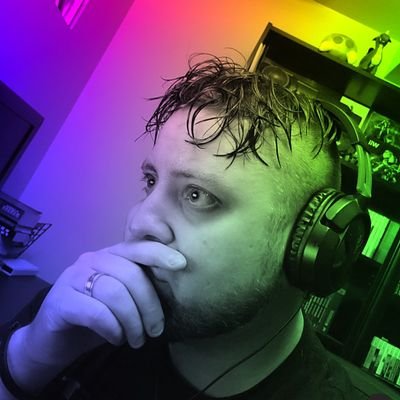
Andy Spiteri is a Manager of Zelda Dungeon, Host of The Zelda Cast podcast, and Owner of Omega Metroid. Probably drinking a Tim Horton’s Double Double as you read this.
Business: andy.spiteri@zeldadungeon.net



